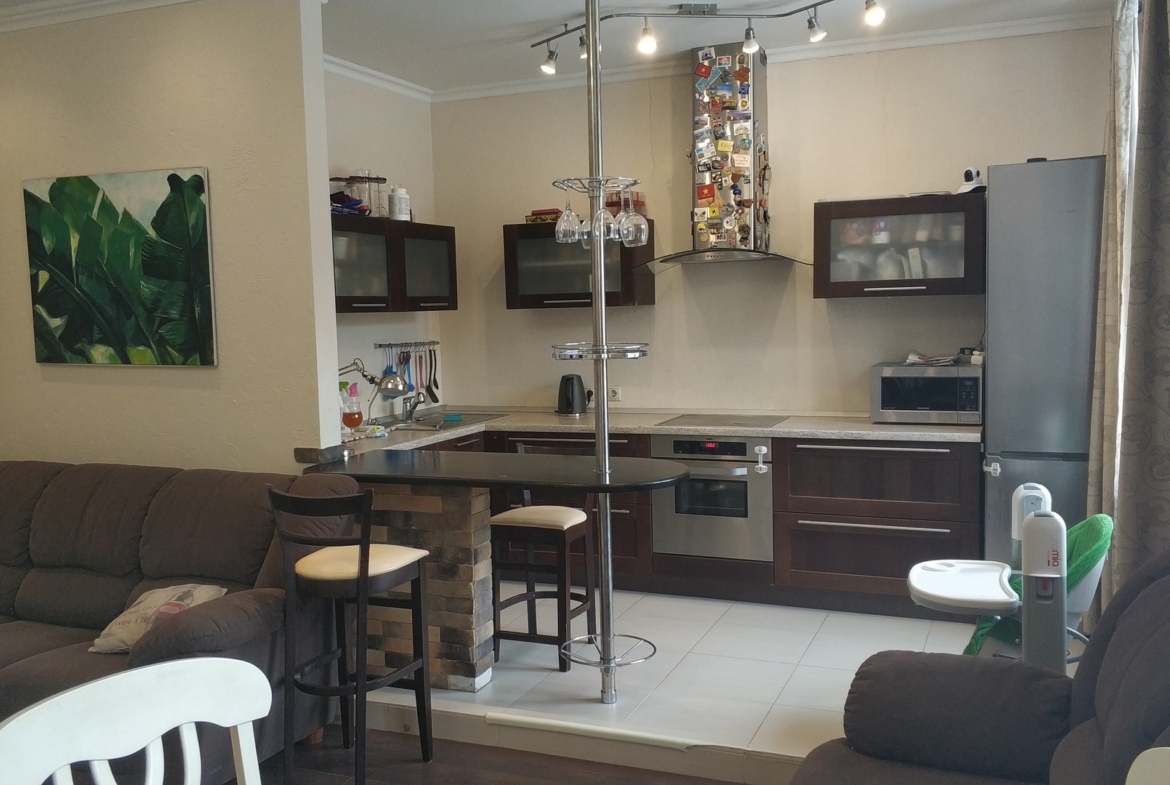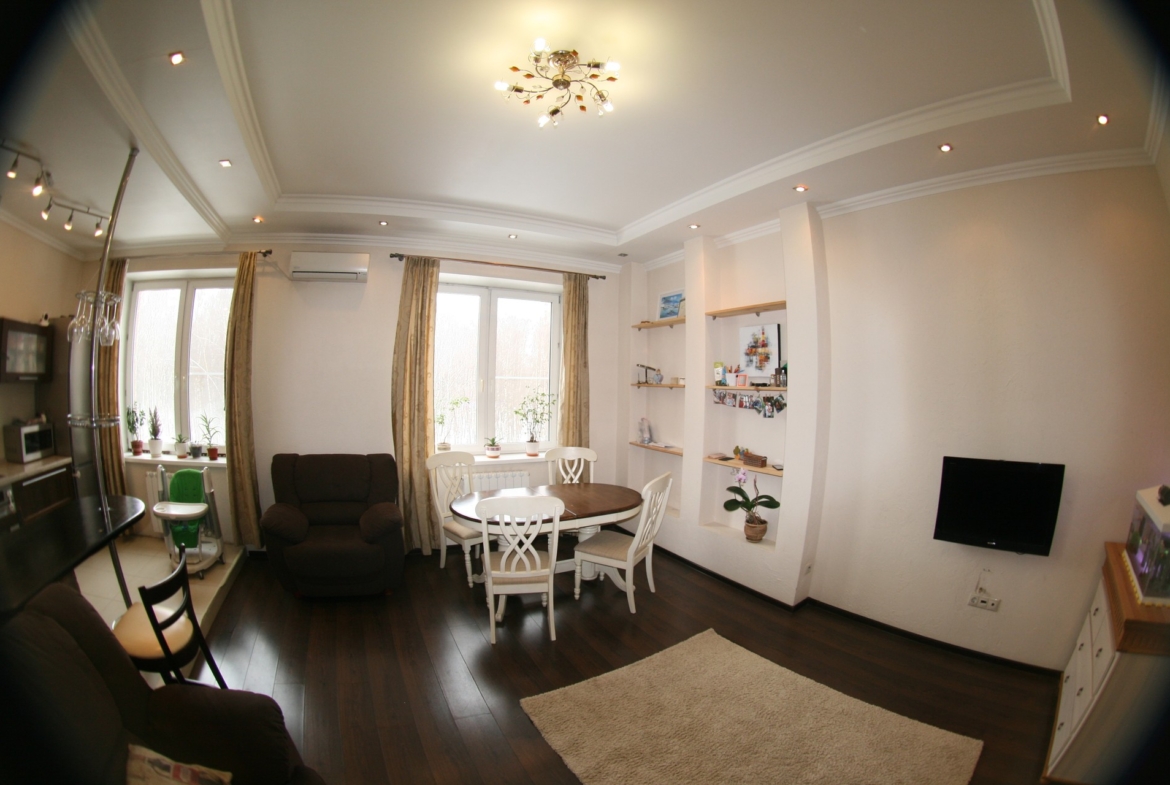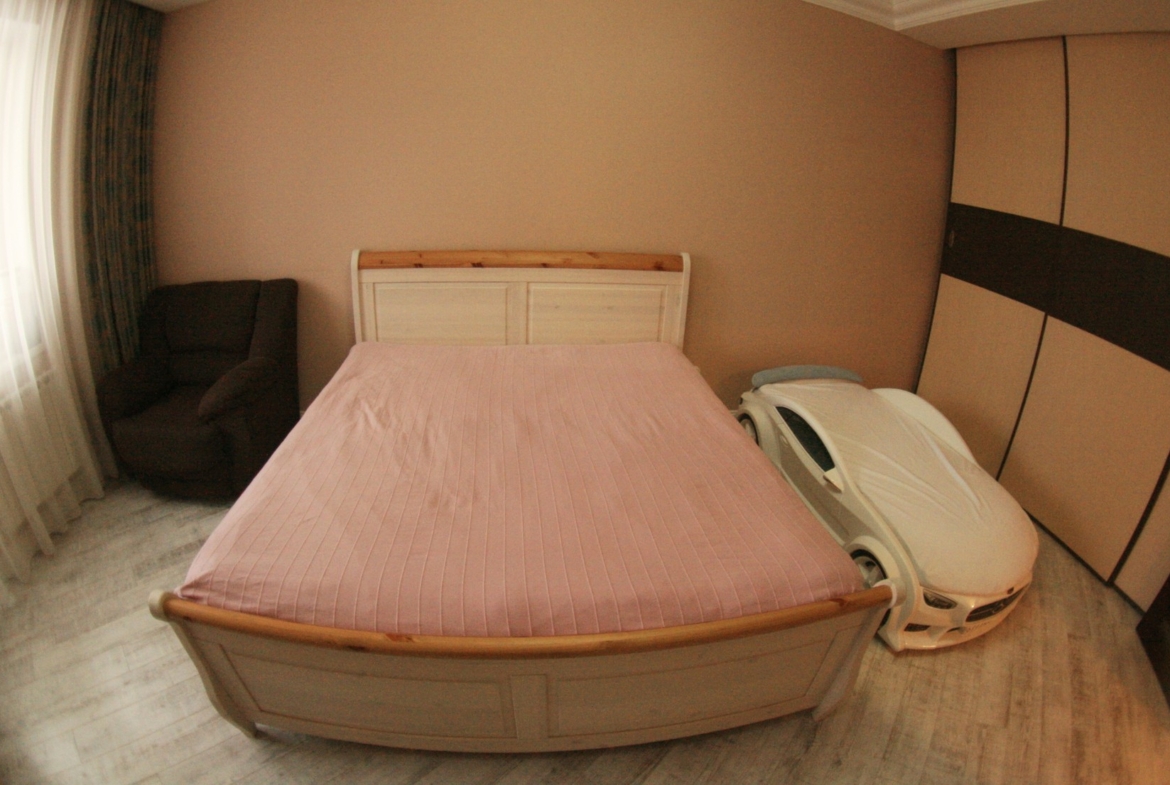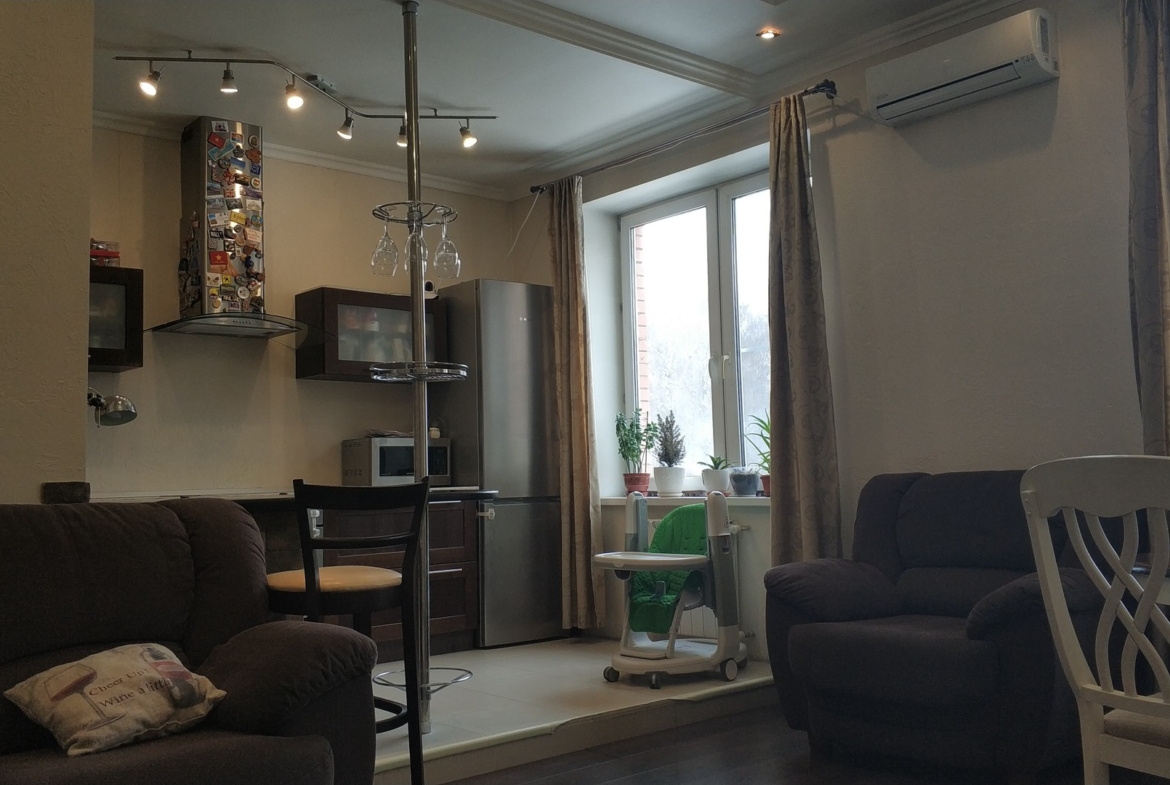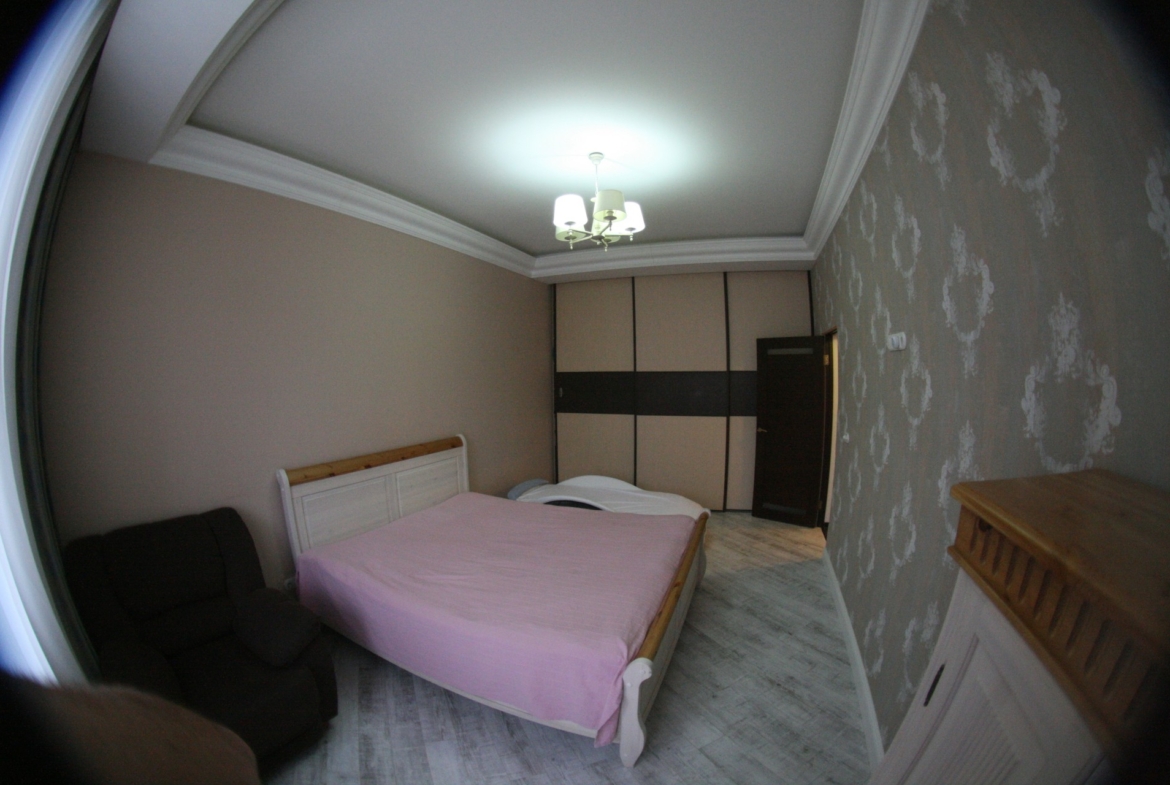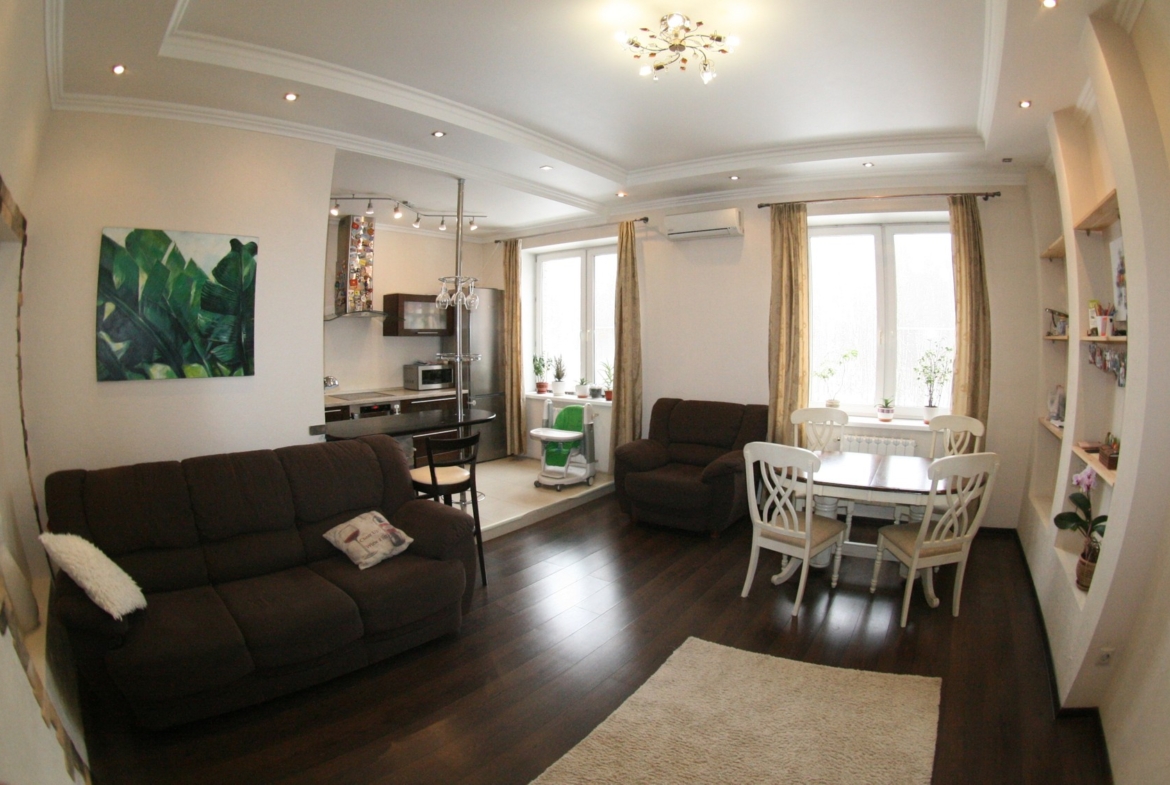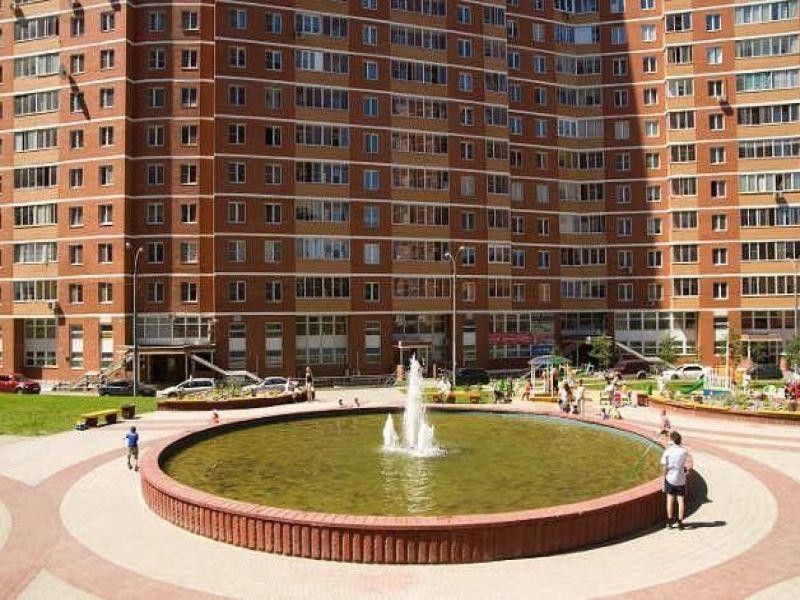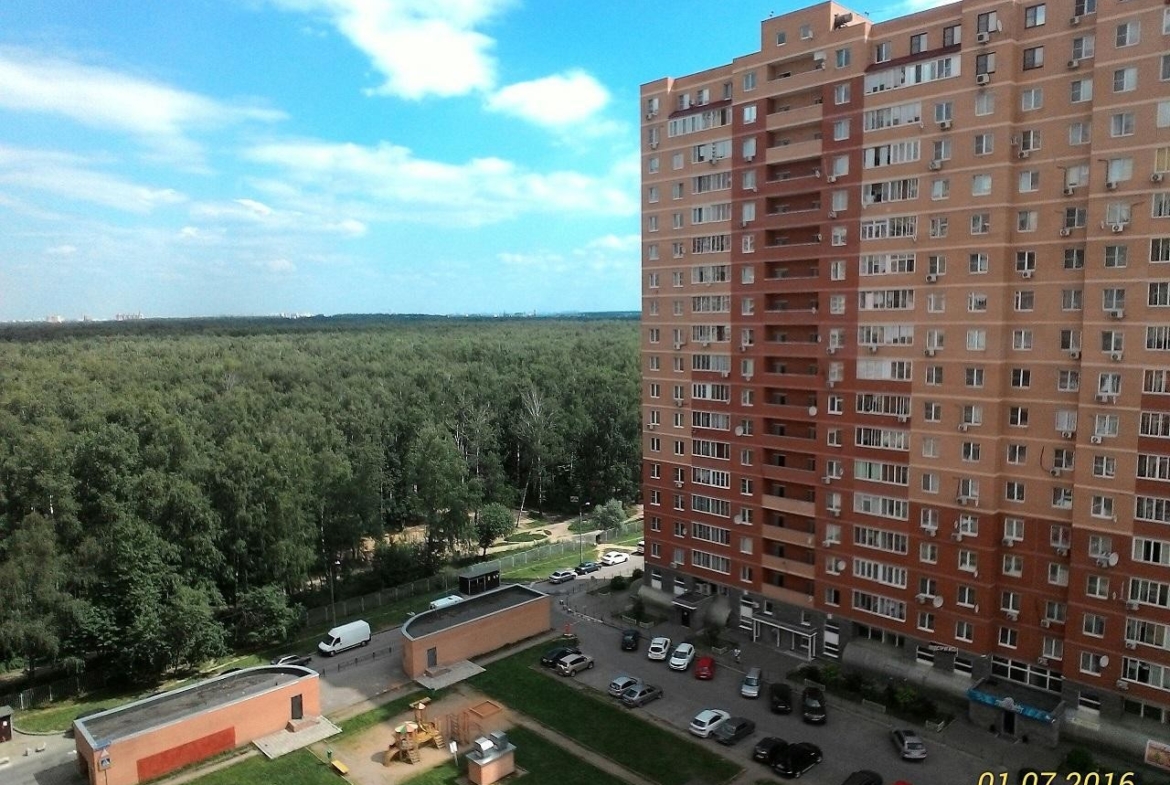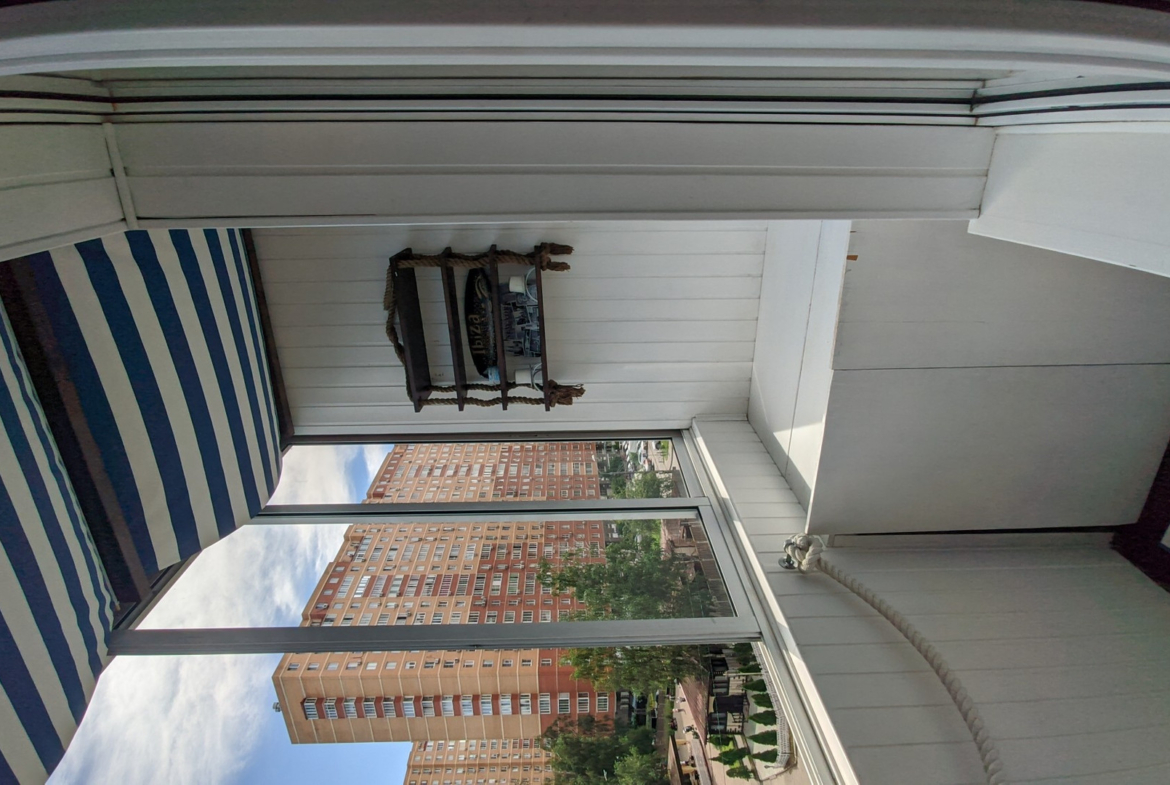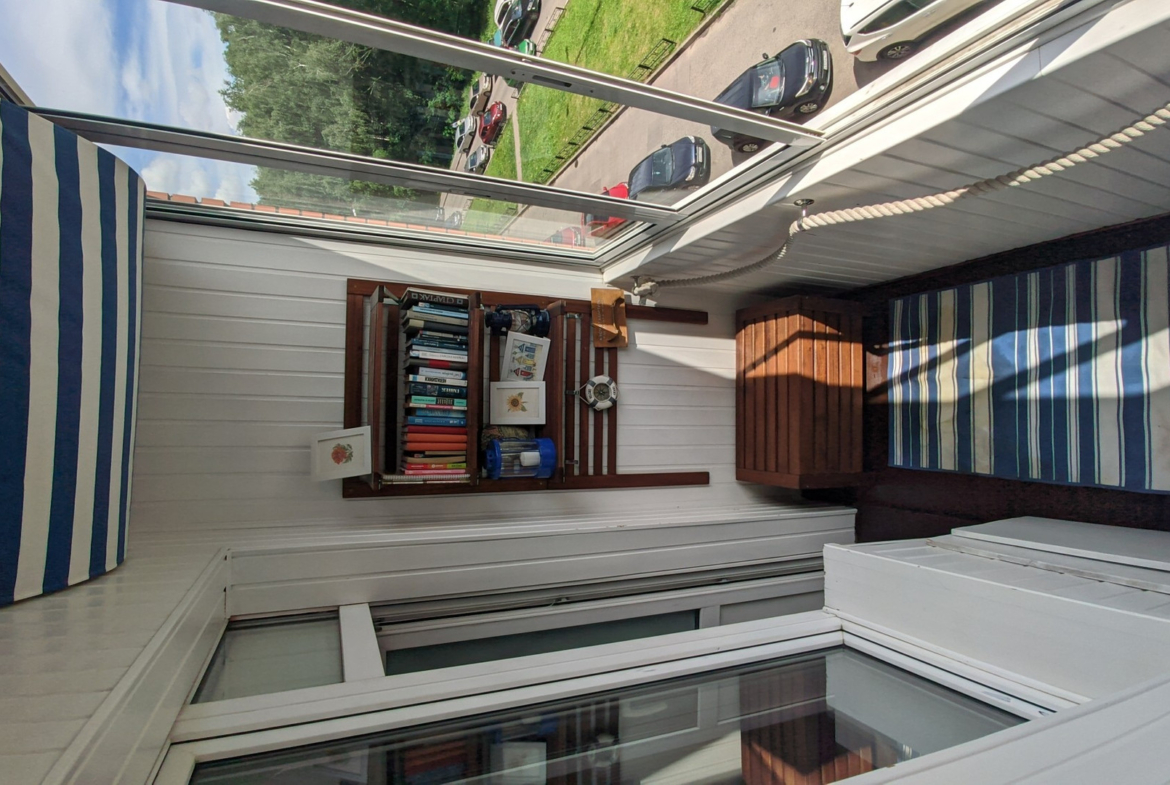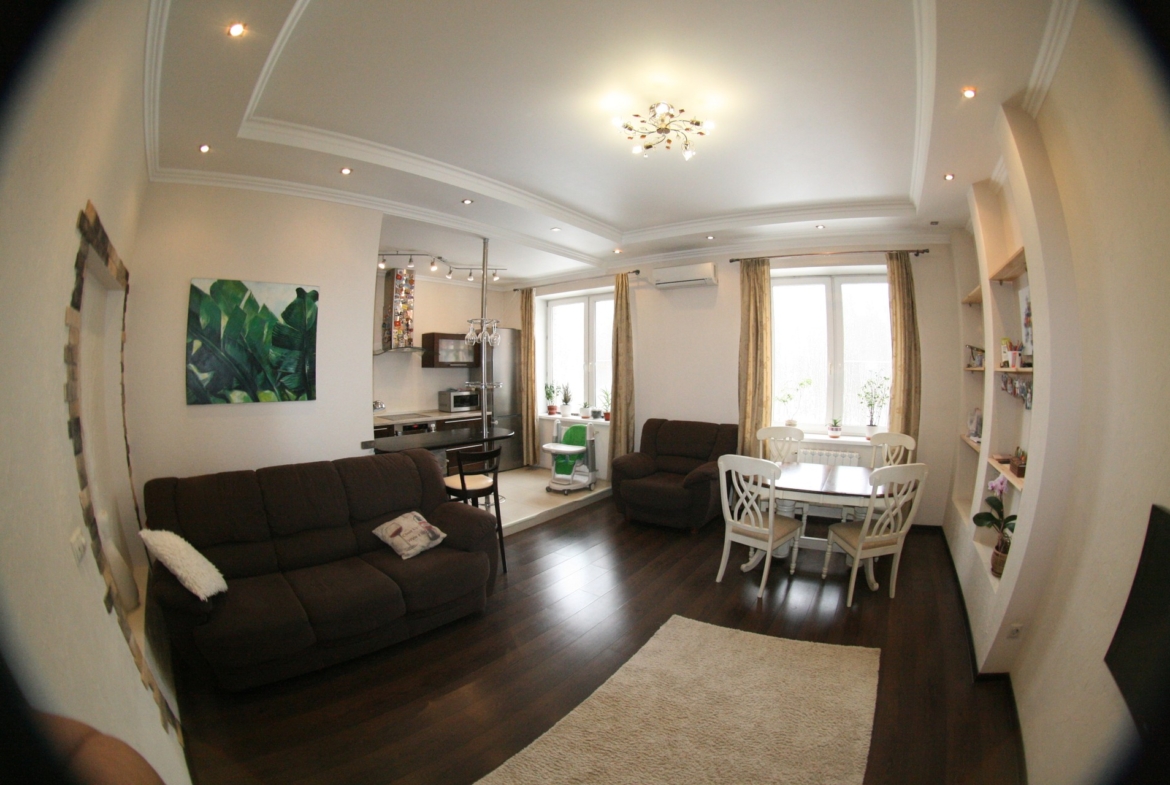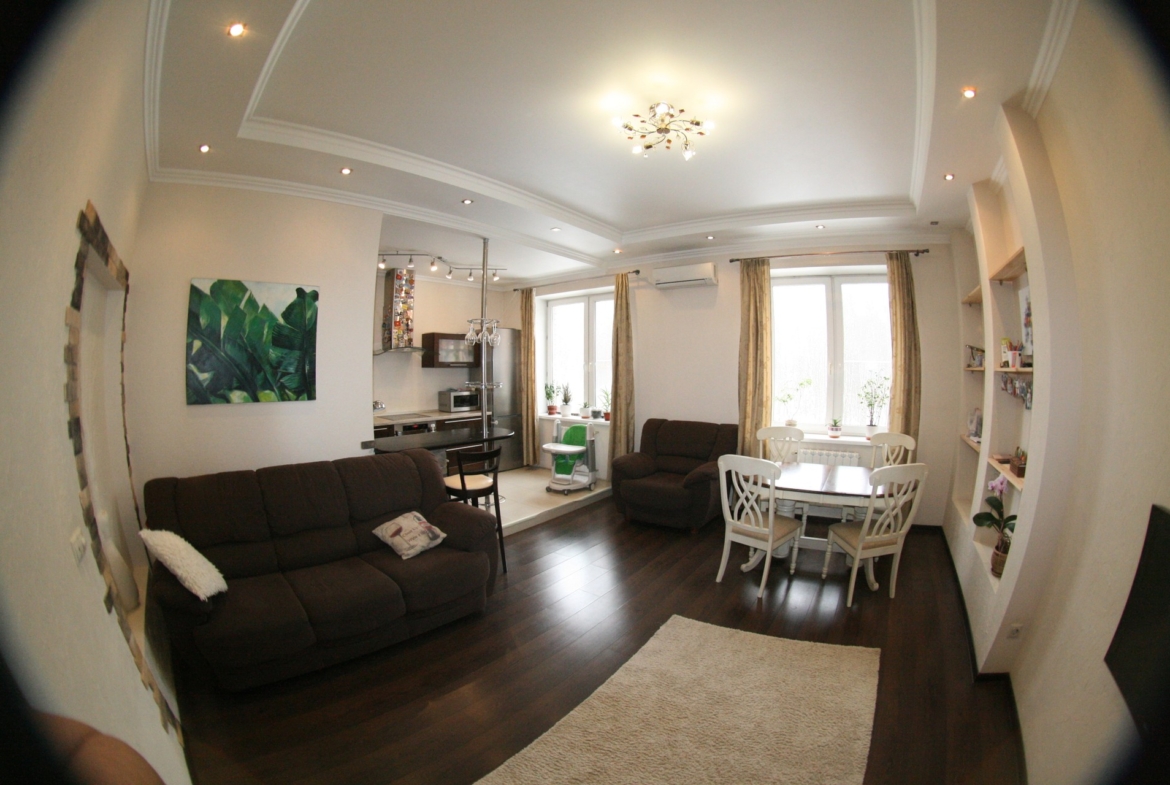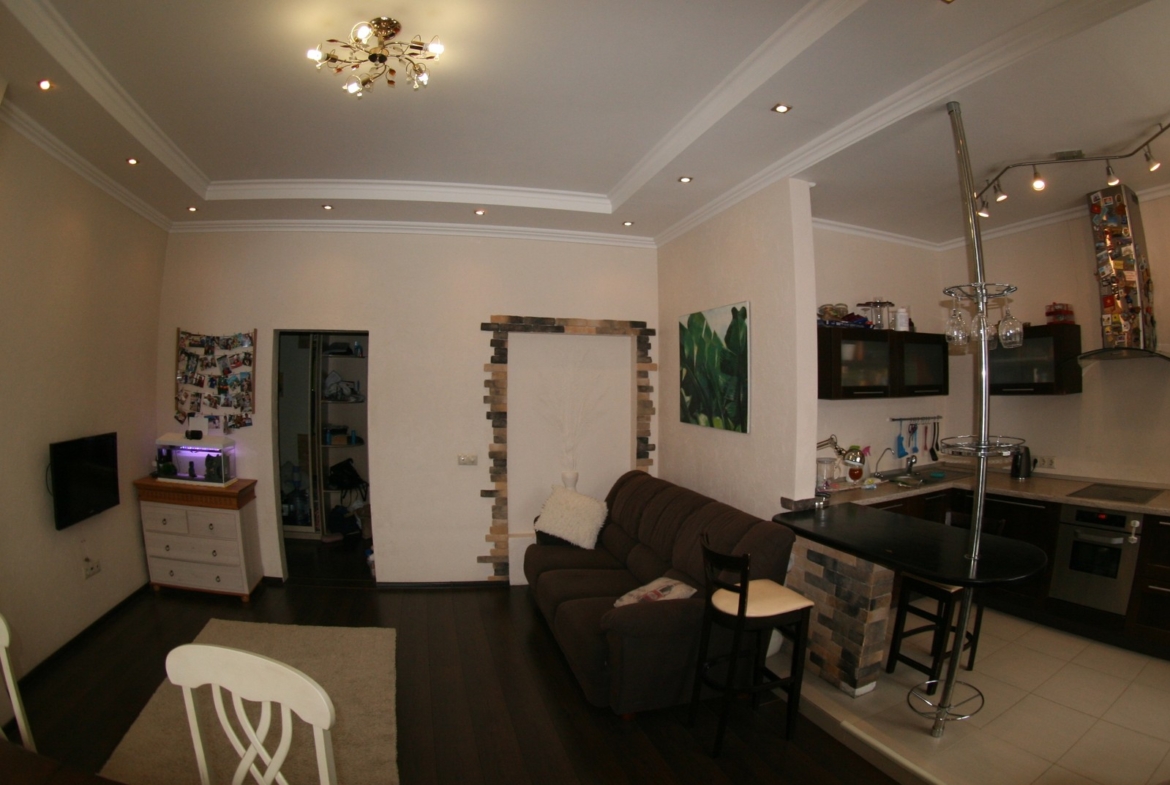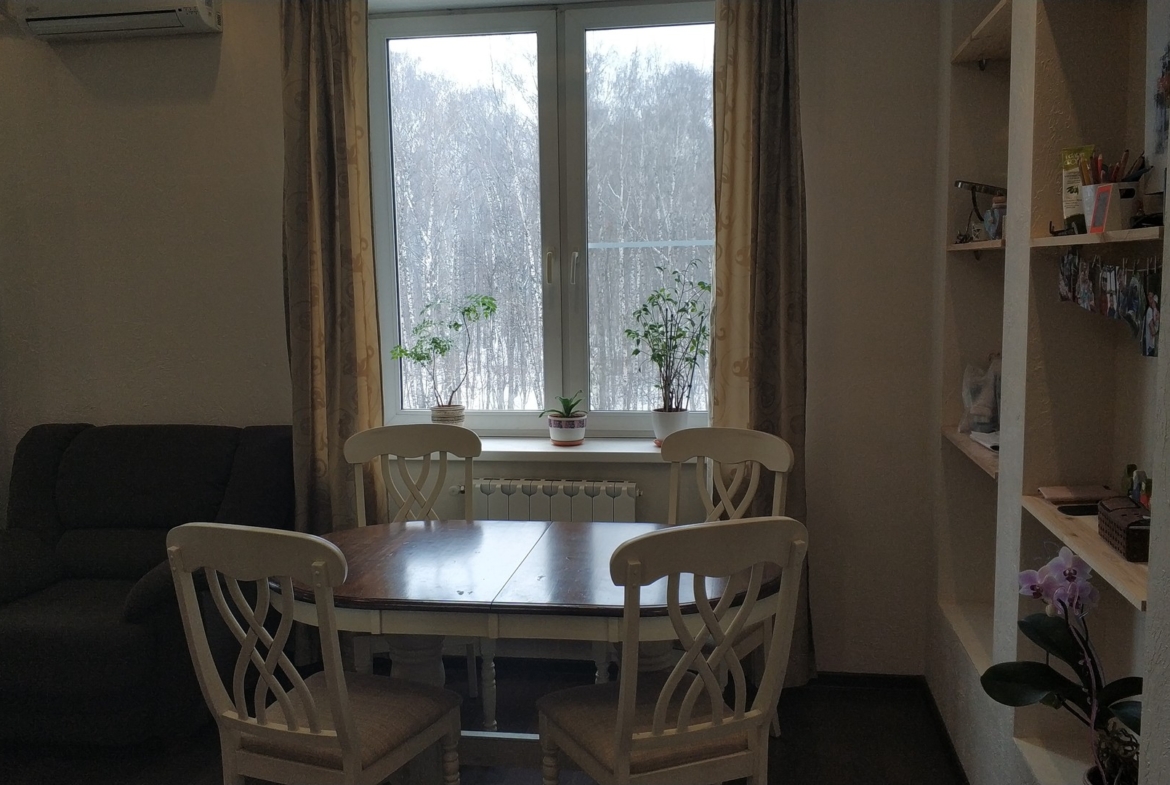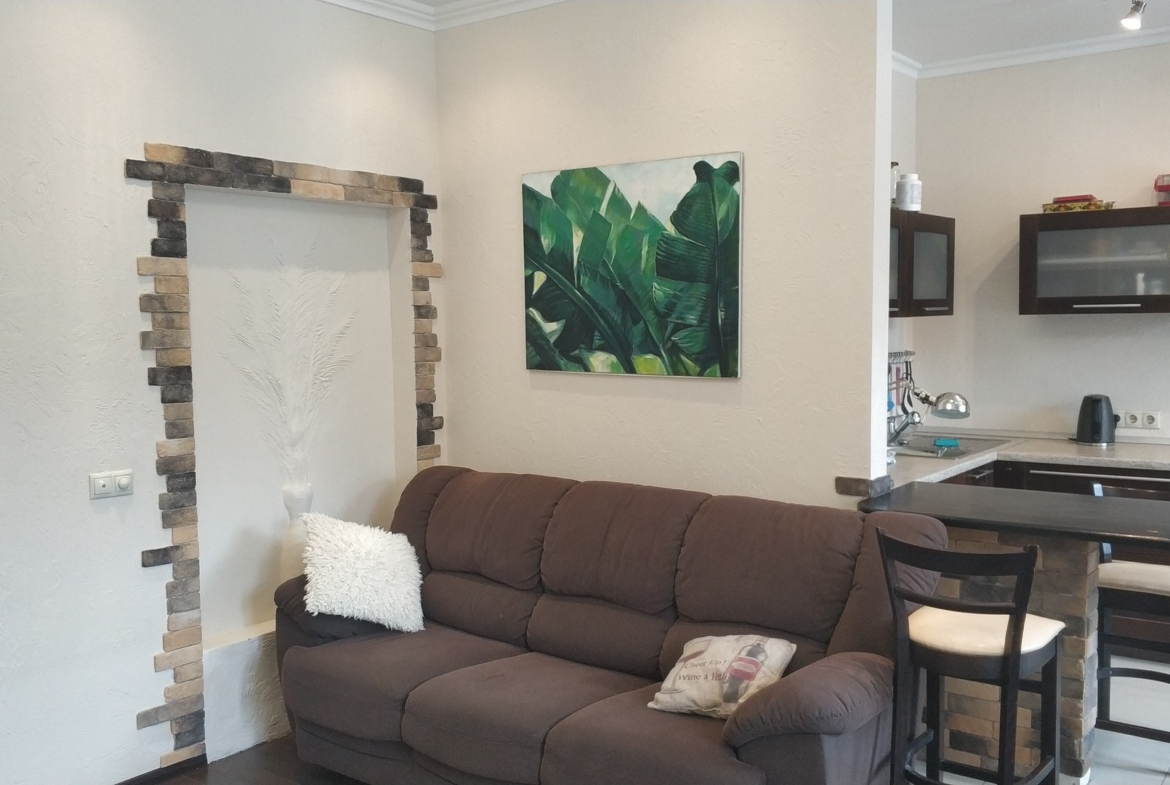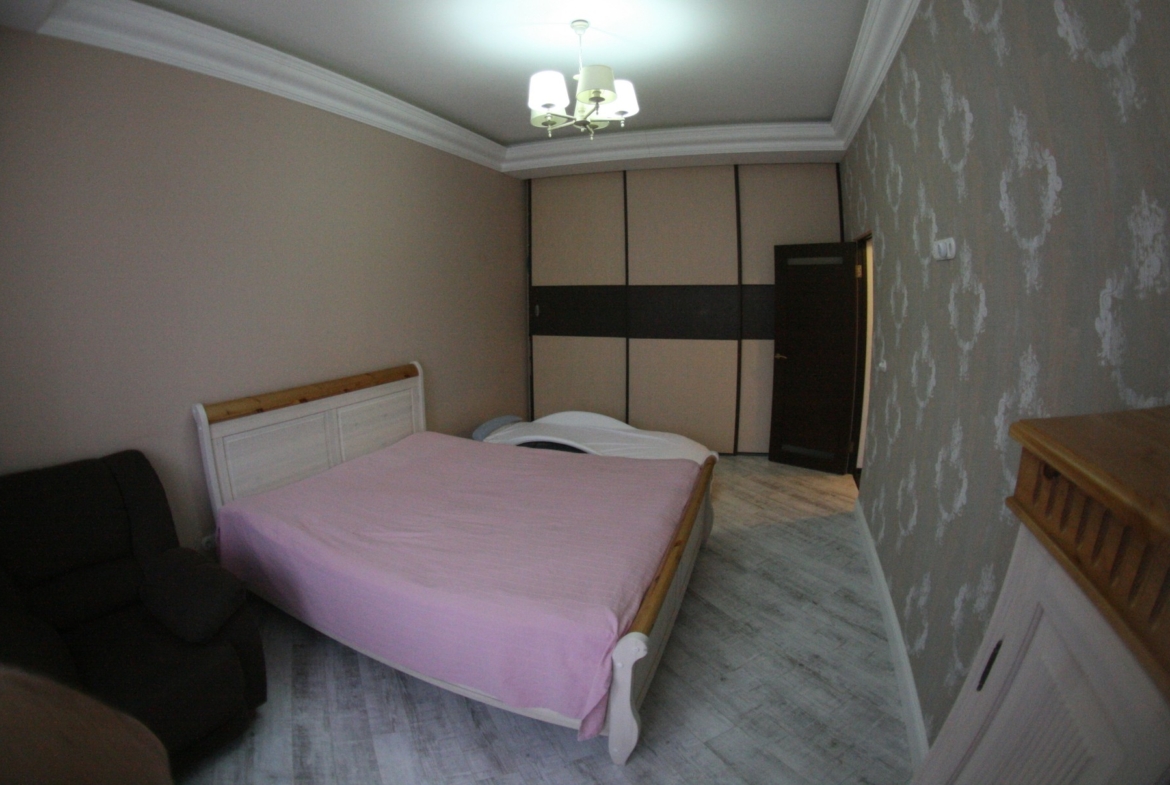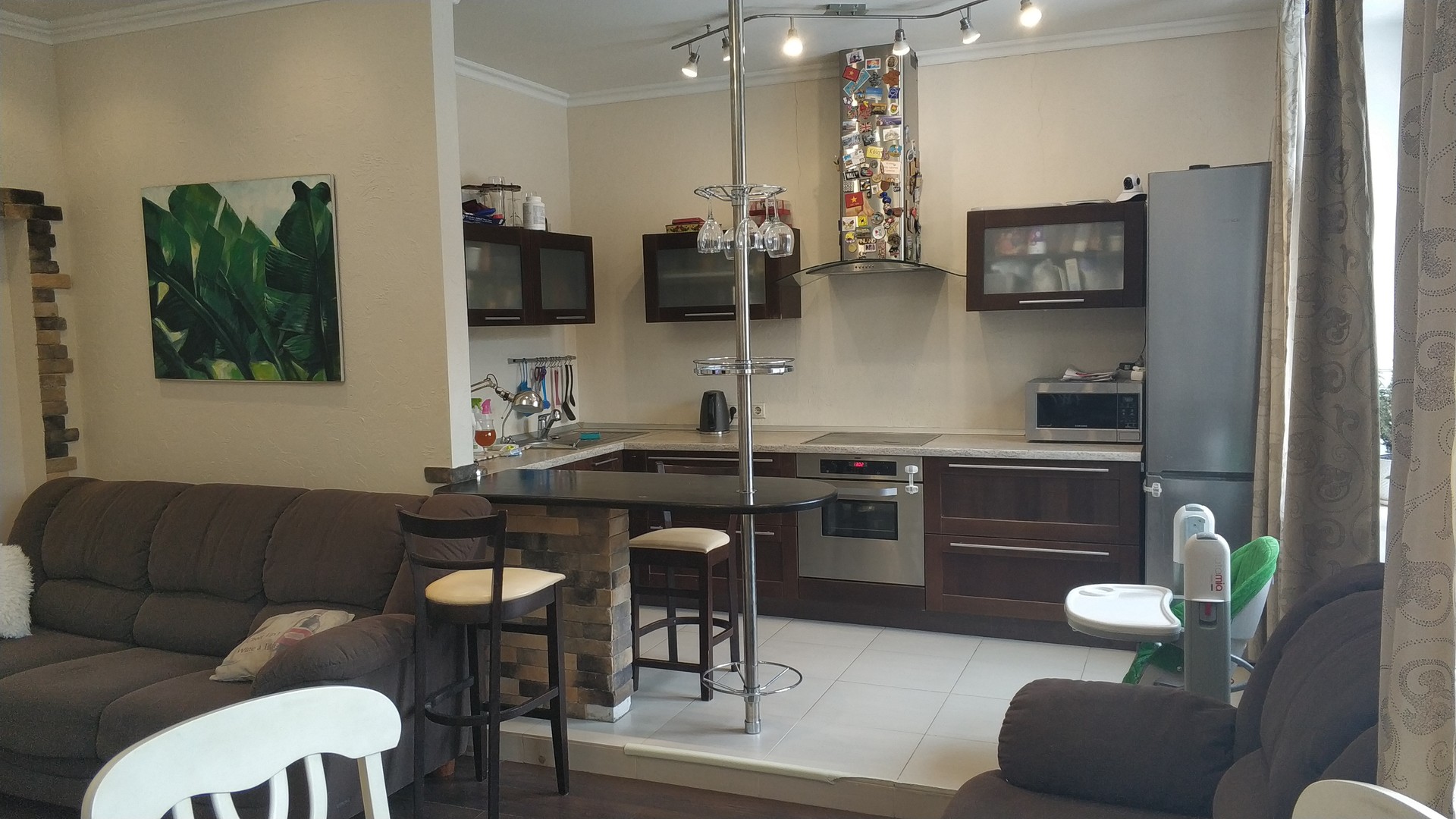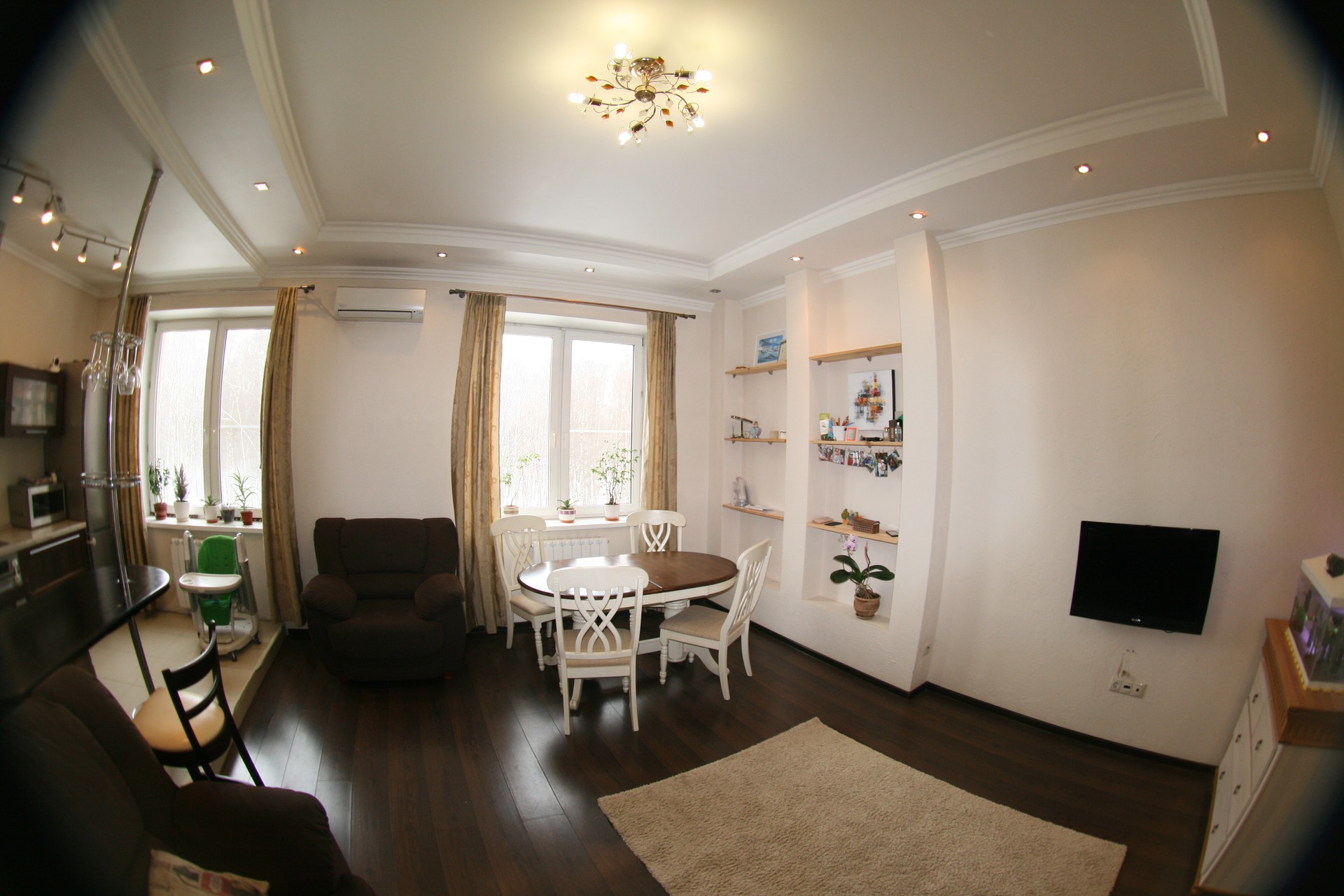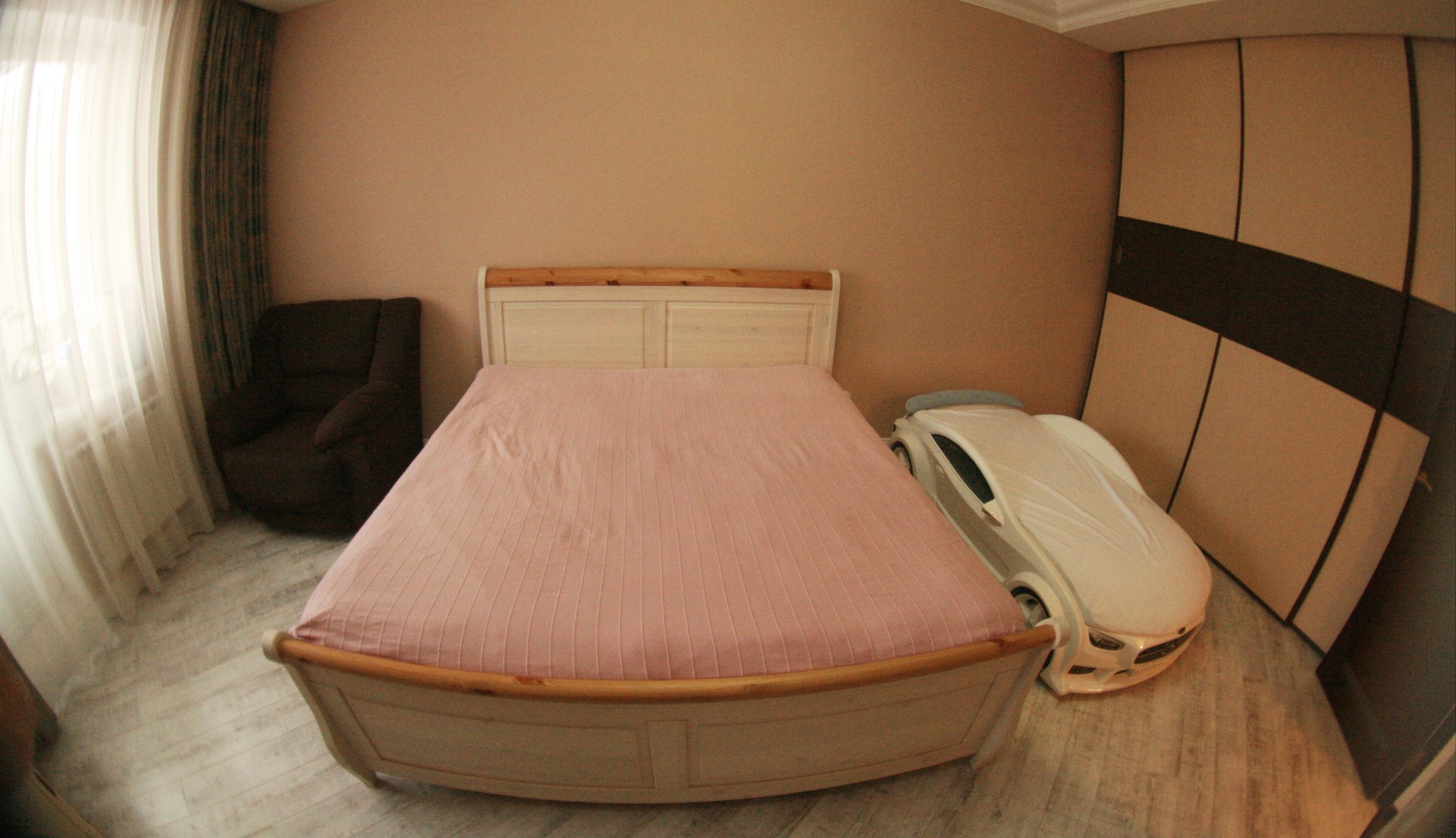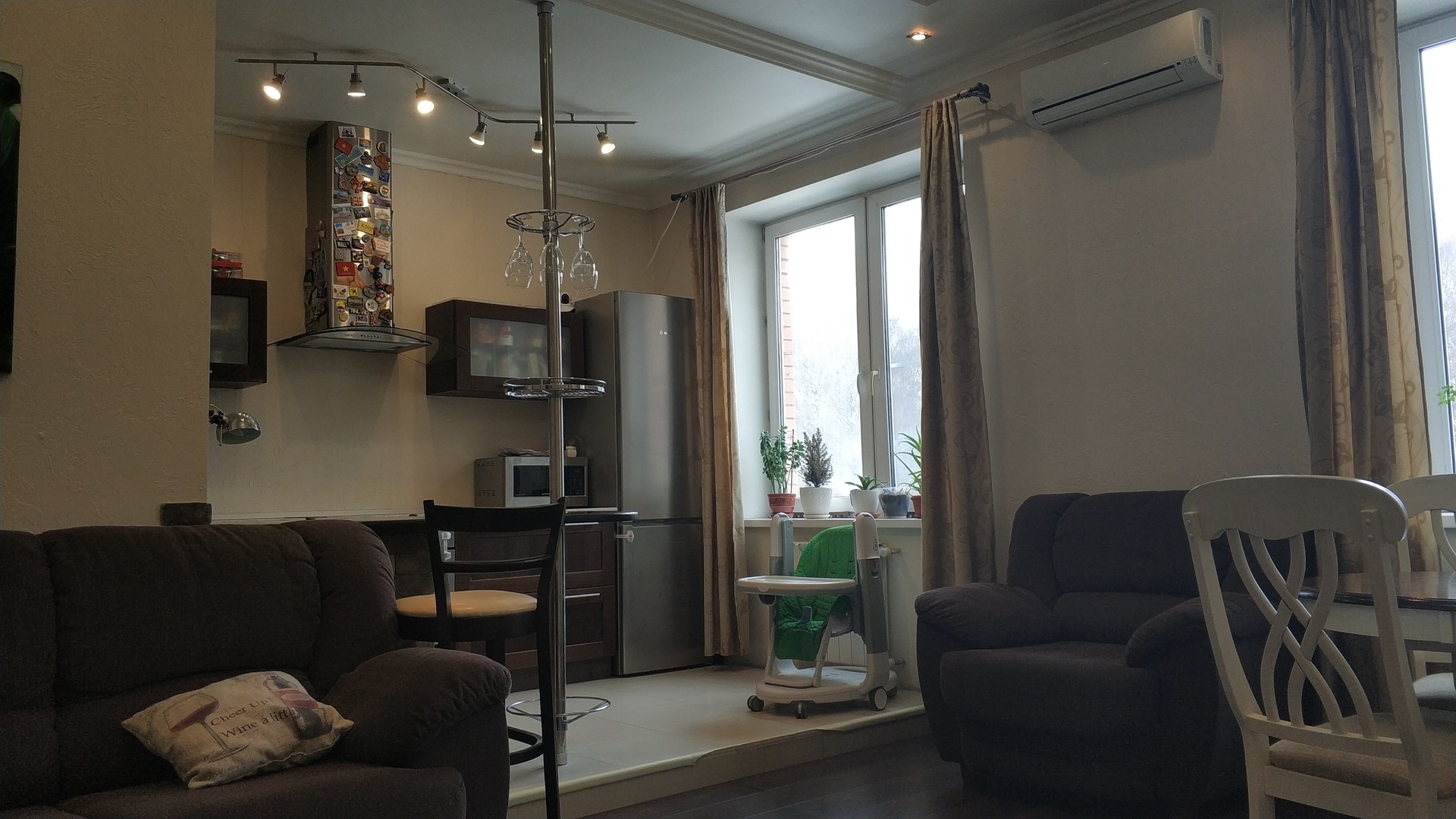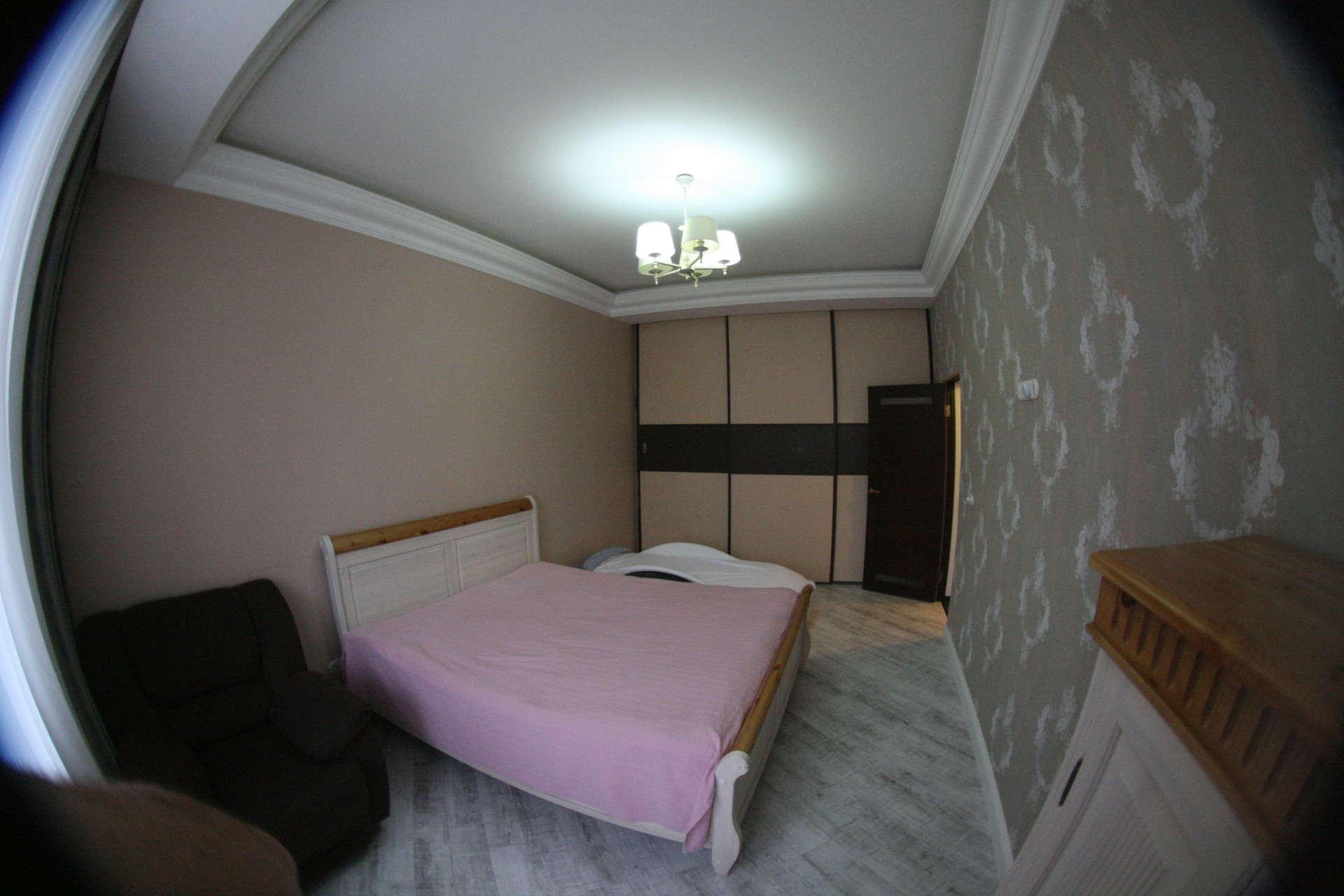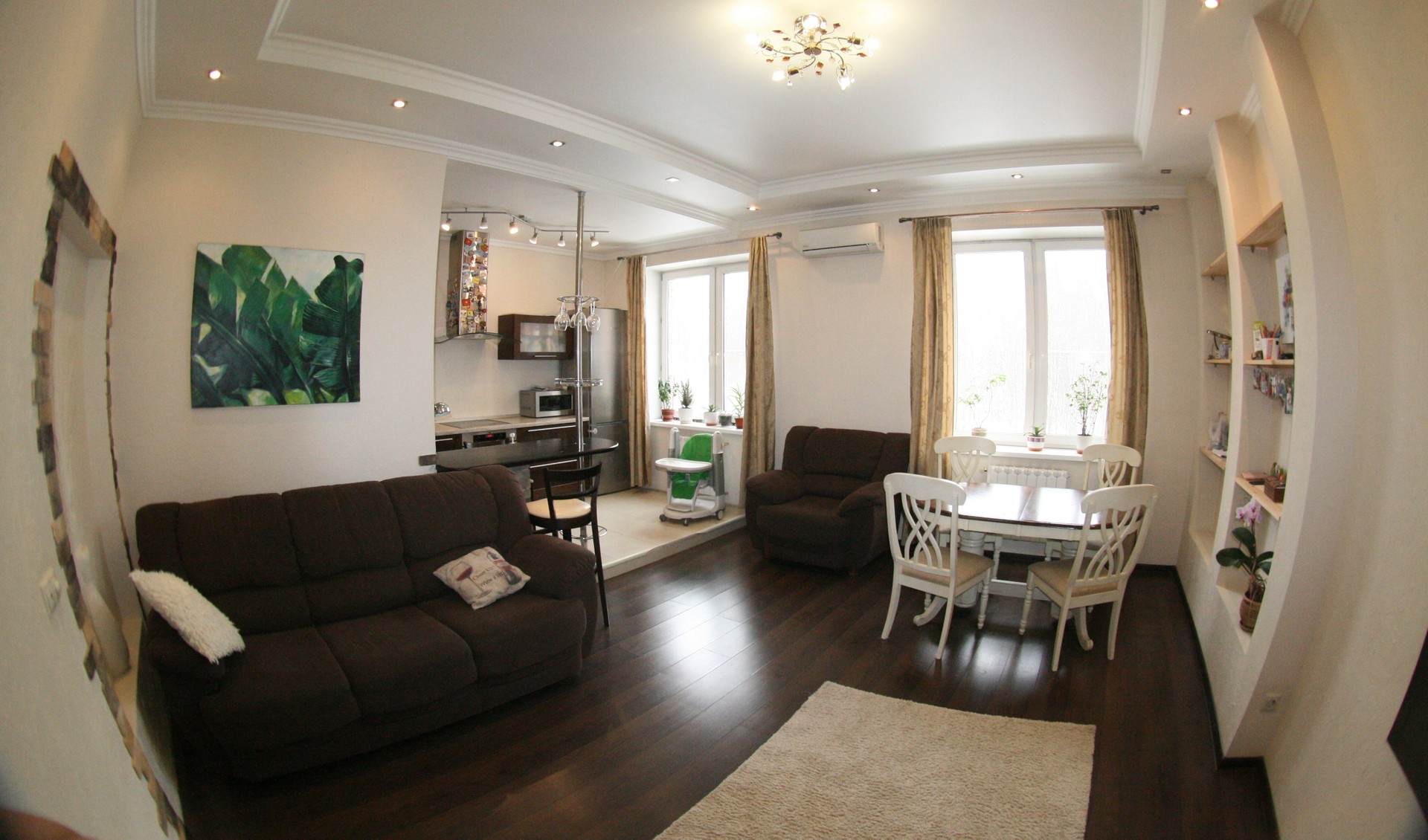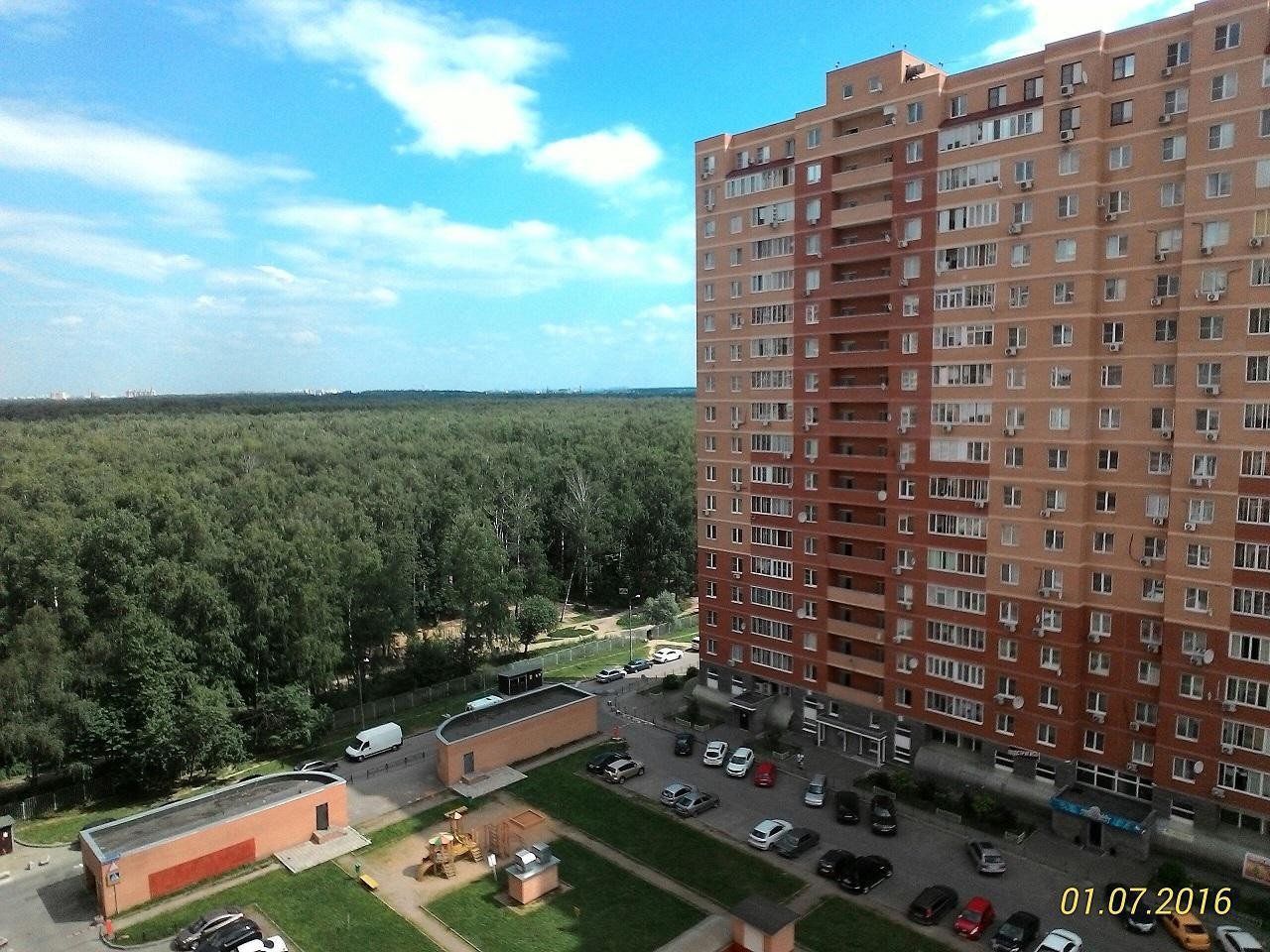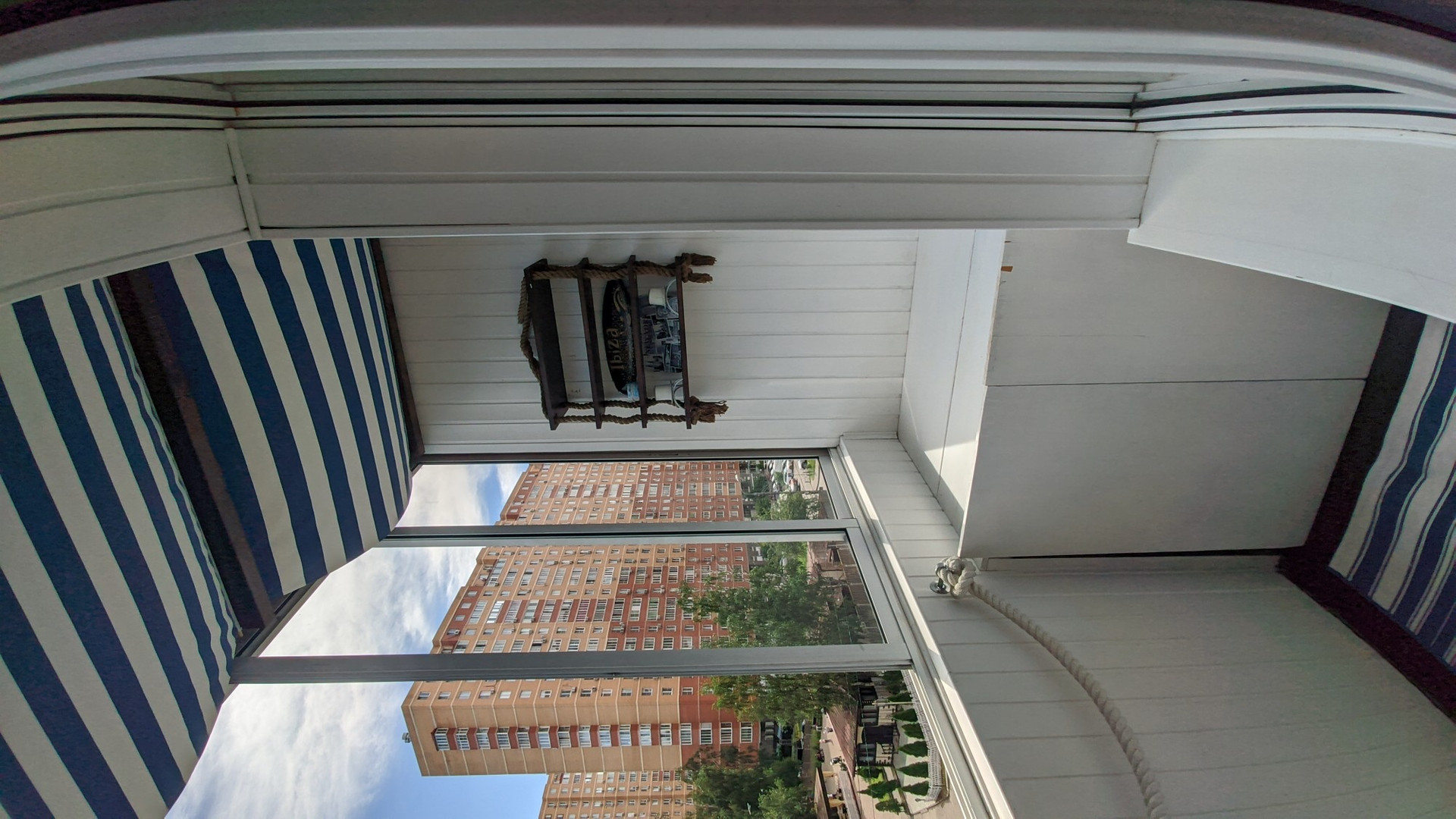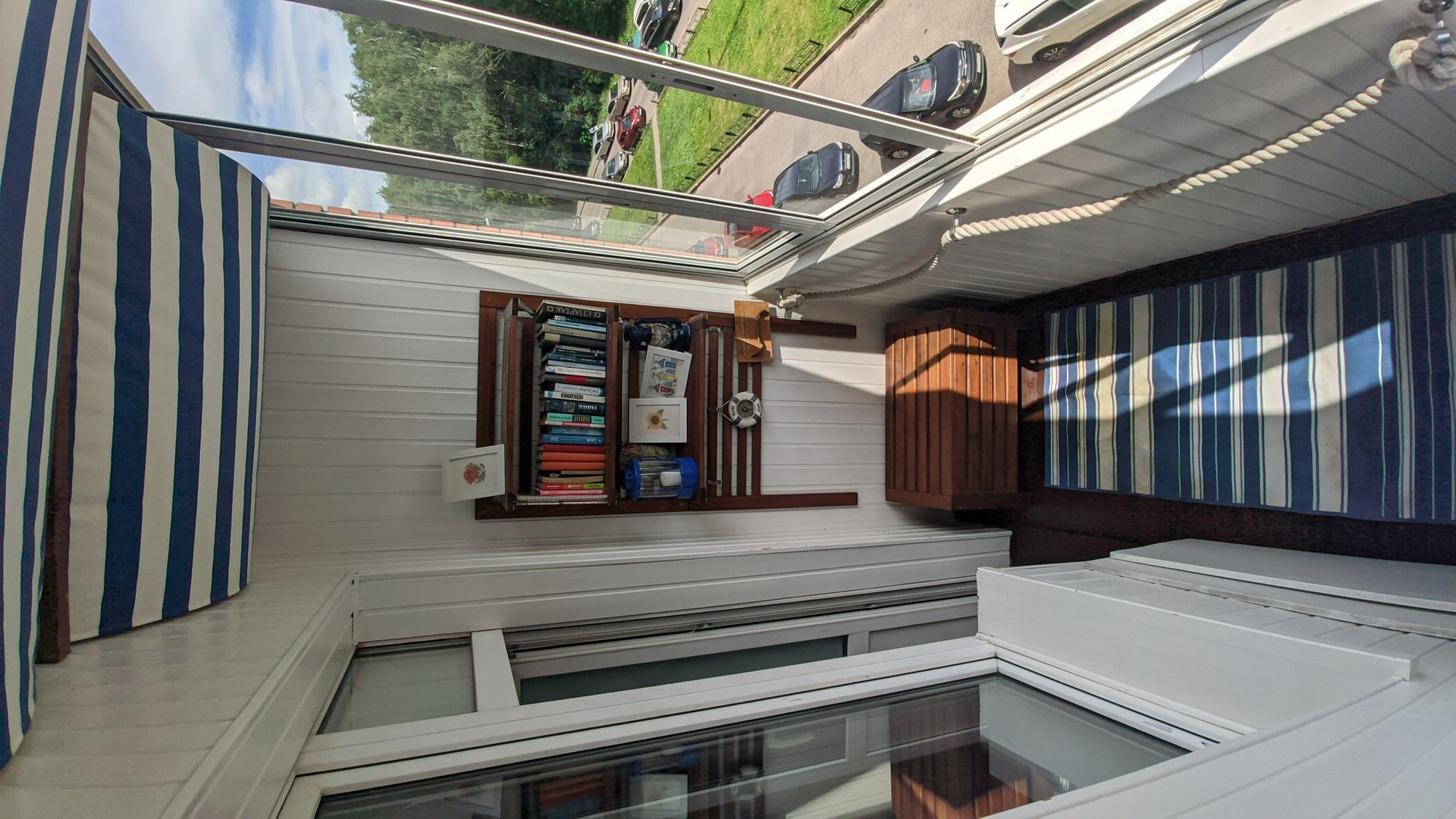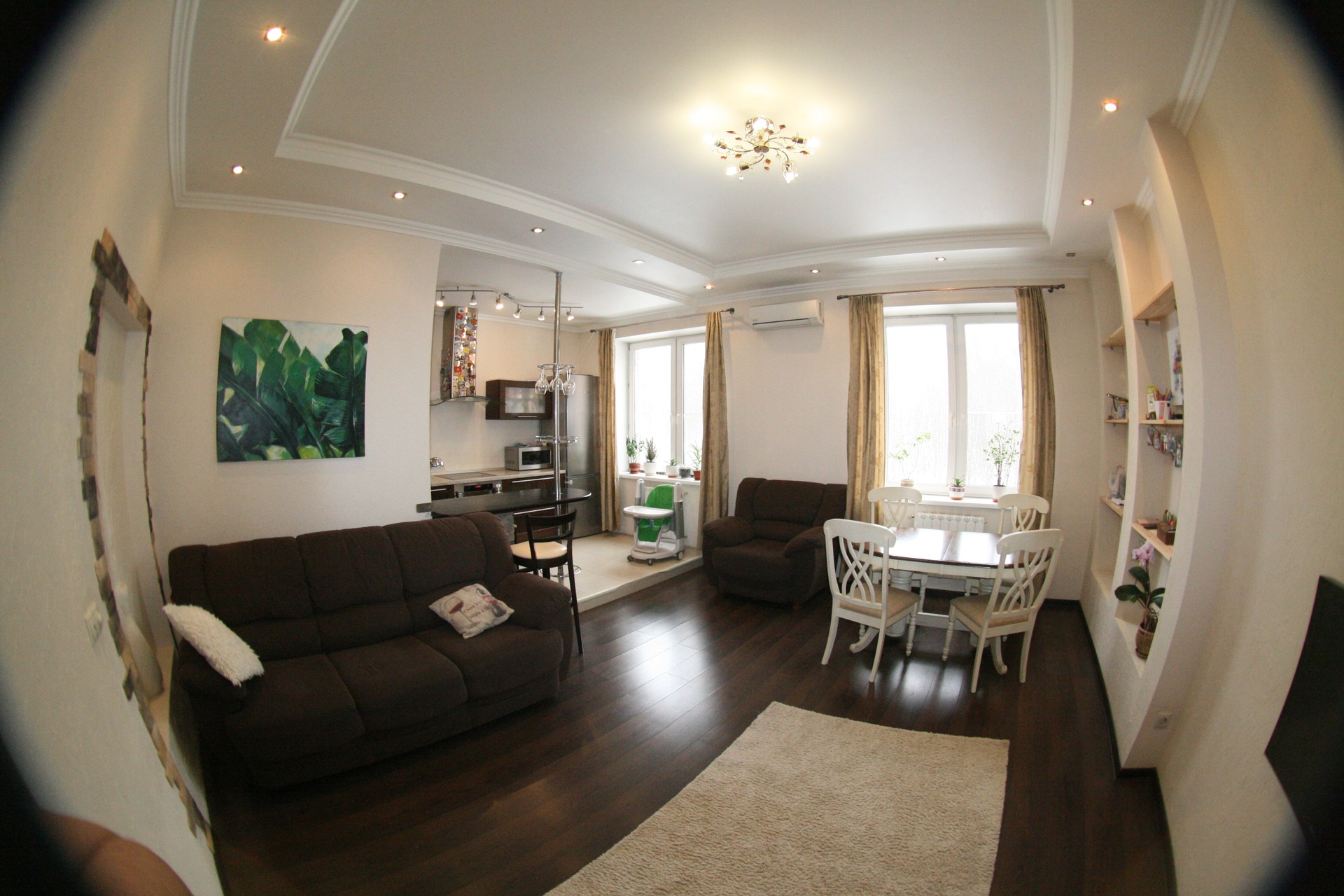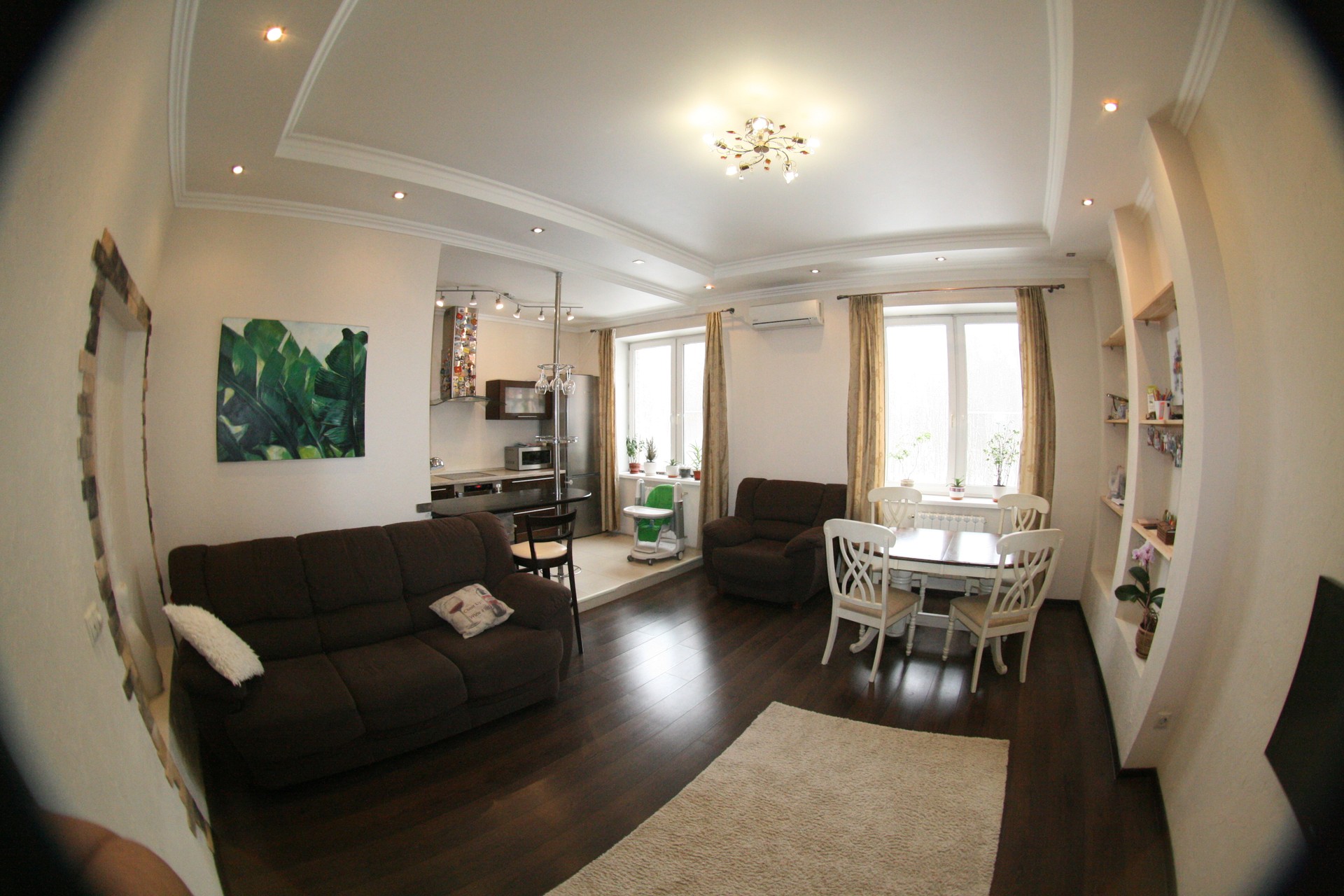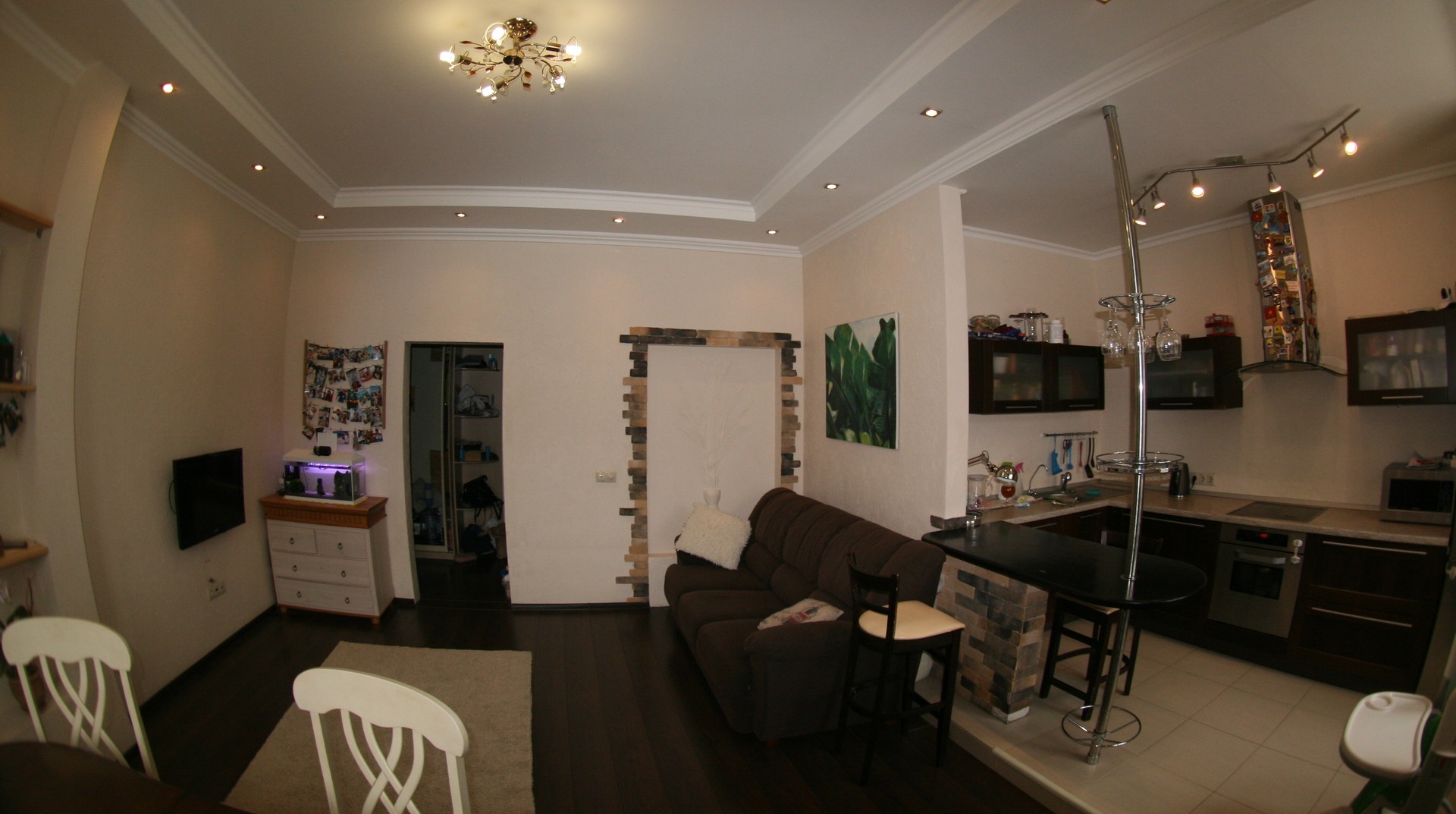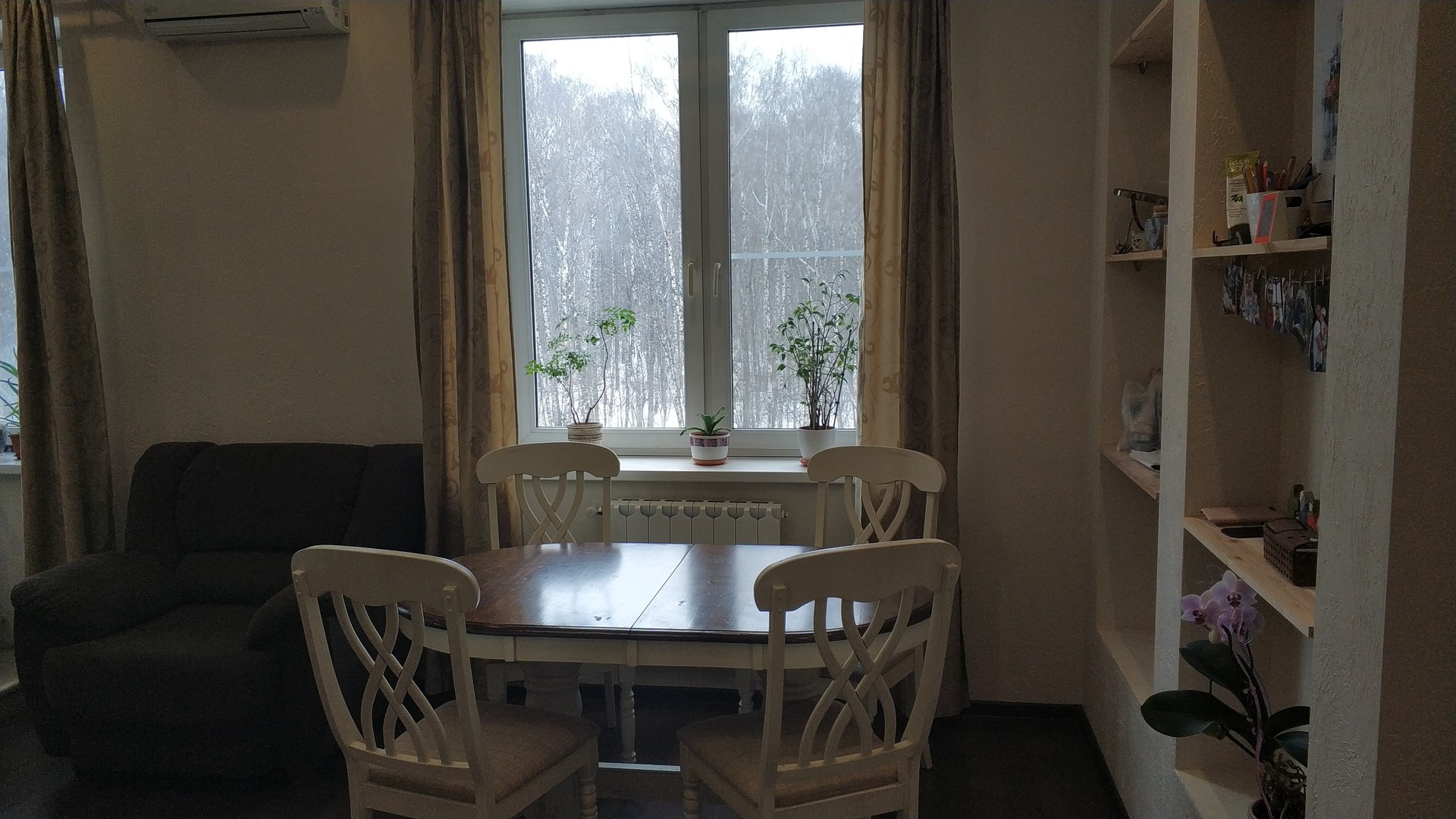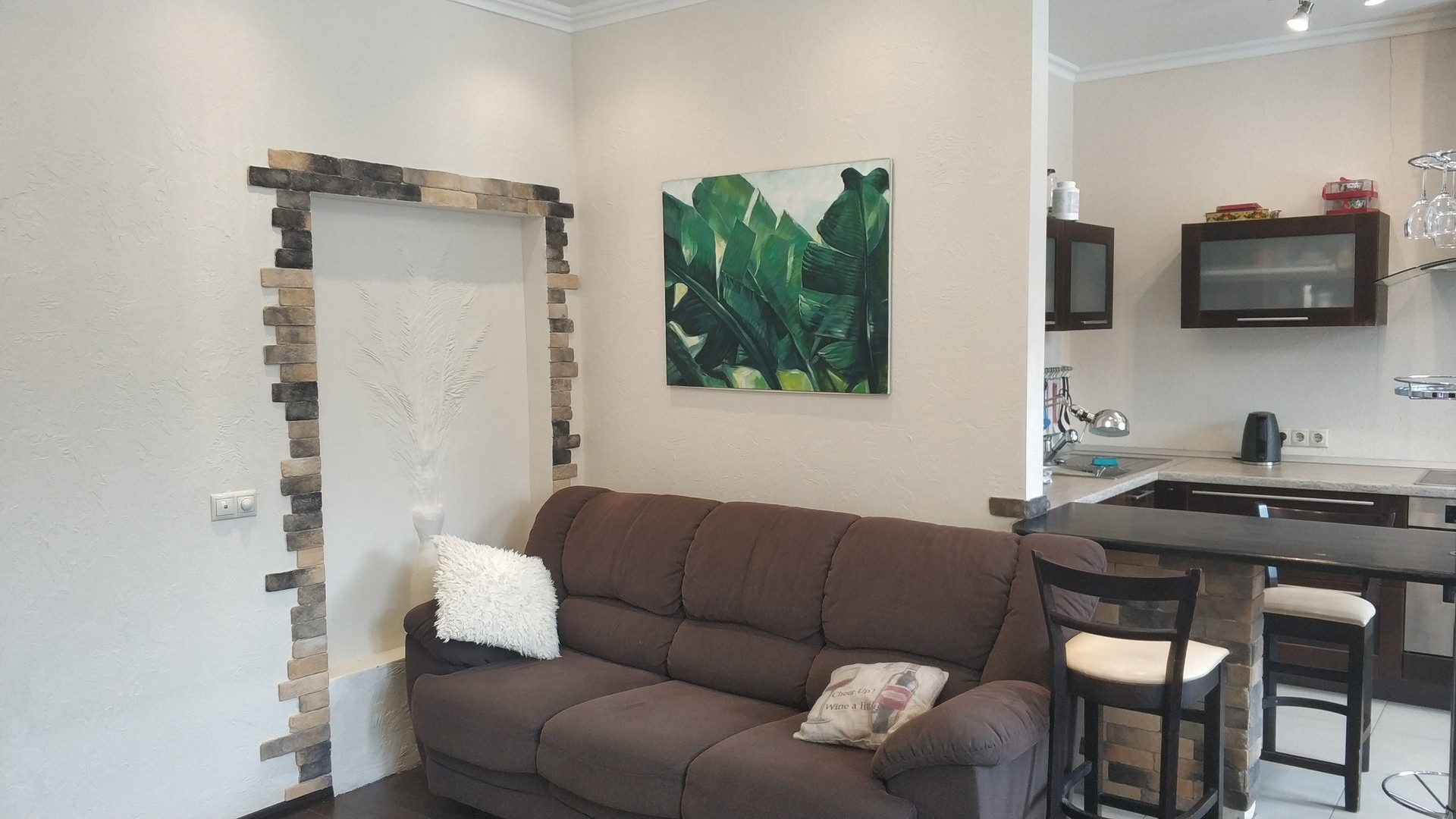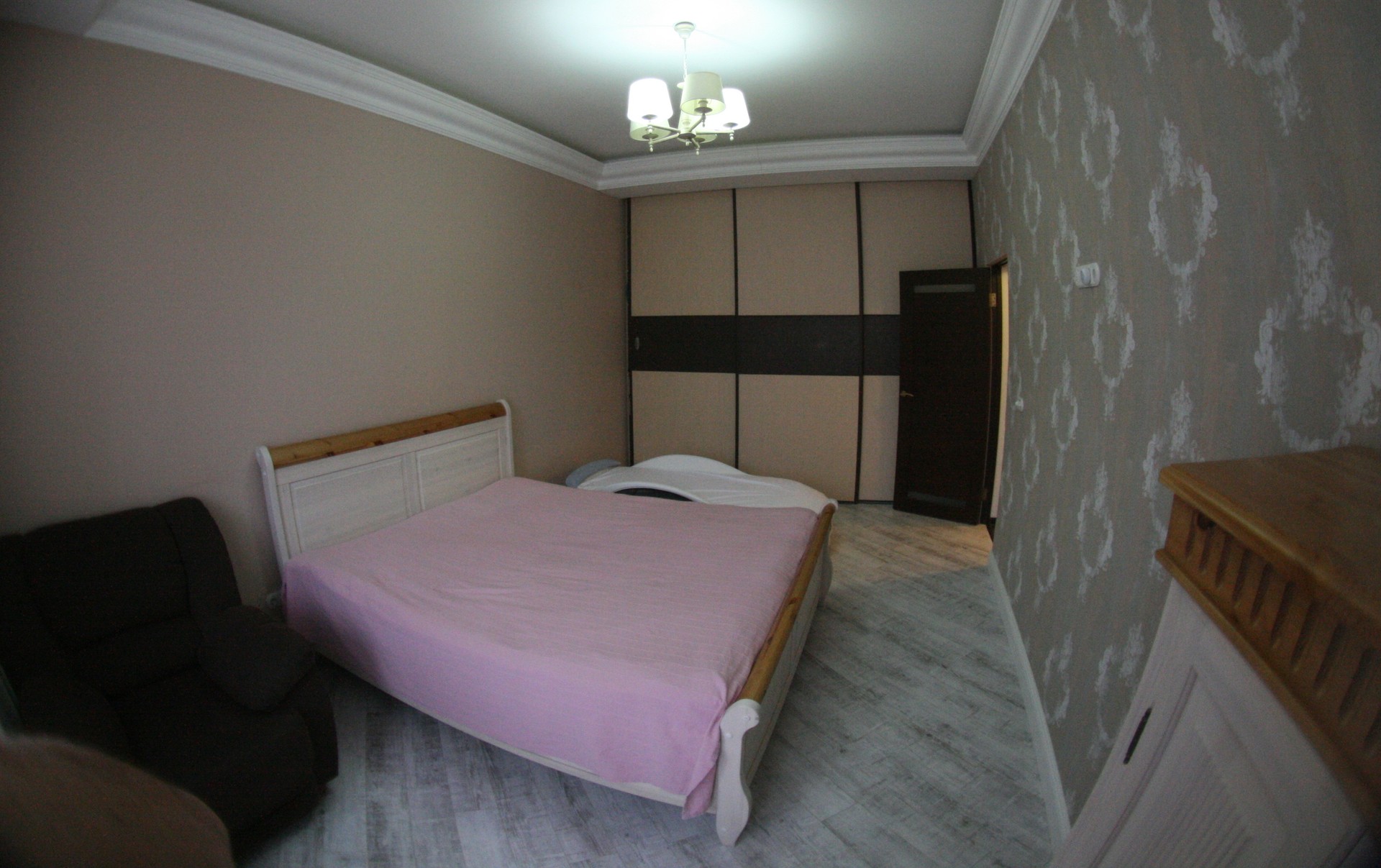Overview
- Apartment
 3
3- Floor
 2
2
 1
1
 1
1
 67
67
 2009
2009
Description
2-room apartment For sale in Moscow, 67 m² bright apartment overlooking the birch forest (first line) 🌿.
🔸 Spacious kitchen-living room, bedroom with a comfortable large wardrobe, cozy and spacious loggia.
🔸 Sunnyside.
🔸New house (2009) with high ceilings over 3 meters.
🔸 Well-groomed adjoining territory, planted with flowers and thujas, parking behind a barrier.
🔸Consider, the fire alarm in the house.
🔸Developed infrastructure: within walking distance of a children’s clinic, schools, good state, and paid gardens, playgrounds, the best perinatal center in the Moscow region, beauty salons, fitness centers, a swimming pool, chain stores (Atak, Perekrestok, Lenta, Dixie, Victoria) …
🔸Transport accessibility: 4 km from the Moscow Ring Road, near the house there are buses and minibusses to metro Domodedovskaya, Annino, Kantemirovskaya (30-45 minutes), also near the Rastorguevo railway station (Paveletskoye direction) – in 35 minutes you can get to the Paveletsky railway station.
Features of the
- Intercom concierge code door
- Courtyard view, forest view
- In the courtyard underground guarded with a barrier
- Playground playground
- School kindergarten shopping center park fitness
Apartment
- Rooms 2
- Square 67 m 2
- Residential 45 m 2
- Kitchen 7 m 2
- Floor 3
- Ceiling height 3
- Bathroom combined
- Number of balconies one
- Repairs euro
- View from windows into the yard to the forest
- Year built 2009
- Number of floors eighteen
- Wall material monolithic
- Garbage chute there is
What You Should Know Before Buying Residential Property in Russia
Introduction
Investing in residential property is one of the most popular and reliable ways to preserve and multiply capital. Such investments were common in Russia prior to the revolution, and the practice is now flourishing. This article focuses primarily on considerations for individual investors considering purchasing (or receiving as a gift) residential property in Russia. They are as follows: 1) who is eligible to purchase residential property in Russia; 2) what types of property qualify as residential; 3) restrictions on purchasing and using cultural heritage property; 4) due diligence: how to obtain and verify information about residential property; 5) execution of a sale and purchase agreement or donation agreement and state registration of title transfer; 6) purchase pr
Russia now has a well-structured and detailed regulation covering all aspects of residential property acquisition, use, and disposition. While the Russian Federation’s Housing Code (Housing Code) defines the characteristics of residential property, the Civil Code of the Russian Federation and Federal Law # 122-FZ on State Registration of Titles to and Contracts with Real Property, both enacted on July 21, 1997, govern its acquisition and disposition in Russia. The second and third laws will be discussed further down.
This article will not discuss enveloping (the practice of individuals purchasing residential property through corporations) because new Russian laws have made this practice less profitable and inconvenient in terms of paperwork. We will also leave the issues that arise from living in and using condominiums unaddressed. The latter issues are governed by the Housing Code and deserve their own article.
This article is not intended to provide legal advice or opinion. Nonetheless, it may assist readers in beginning and/or continuing their research on the subject.
Who is eligible to purchase residential property in Russia?
In general, any person, regardless of citizenship, can purchase residential property in Russia. Foreigners are not prohibited from owning residential property in any part of the country. They are not, however, allowed to own land near state borders or in sea port areas. This means they can purchase a home but not the land underneath it. This also means that the house owners are at the mercy of the landlord’s mood.
A group of people can also purchase residential property. It will be shared by several owners in this case, and each of them will own a portion of the property.
What Types of Properties Are Considered Residential?
Residential property is defined by the Housing Code as an isolated space that is legally qualified as real property and suitable for permanent living (i.e. it meets sanitary, safety and other technical requirements adopted by the Russian Government for residential property).
1 It can be a flat, a house, a portion of a house, or a single room. In Russia, there are still rudimentary Kommunalkas (communal flats owned and occupied by two or more families). Russia has experienced a housing boom in the last decade. What is the definition of an apartment? The majority of the world considers an apartment to be the same as a flat, but not in Russia. An apartment is a non-residential type of real estate that can be used for an overnight or a temporary stay (for example, in the hotel industry), but not for living. As a result of old industrial buildings being converted into habitable areas, such things popped up all over at first. Nonresidential property, on the other hand, has fewer sanitary requirements than residential property, making these apartments non-residential. Higher utility bills and property taxes are also associated with non-residential status. Furthermore, while people are allowed to physically live in apartments, they are not permitted to legally reside (live permanently) in them or use them as resident addresses. Another danger arises as a result of this. A court cannot seize an individual’s only residential property, depriving him or her of a place to live, under Russian Civil Procedure Code 446, when deciding on remedies to be paid by that individual (e.g. in cases of debt recovery, bankruptcy procedures). So, while the only residential property may remain “intact,” the apartment will almost certainly be arrested and sold. Apartments could theoretically be converted into flats if they meet a set of criteria for residential property. 2
Property Protected as Cultural Heritage: Purchase and Use Restrictions
Residential property can be designated as cultural heritage by the federal or regional governments. The sale and purchase process, as well as potential use, restoration, and renovation work, are all subject to additional requirements or restrictions, such as a prohibition on changing the room plans or the building’s exterior, including its color. 3 A piece of property can be checked against the federal and regional cultural heritage registers. The Moscow register (http://data.mos.ru/opendata/7702155262-obekty-kulturnogo-naslediya-ivyyavlennye-obekty-kulturnogo-naslediya-ivyyavlennye-obekty-kulturnogo-naslediya-ivyyavlennye
Due Diligence: How to Get Residential Property Information and What to Look for
After you’ve decided on a piece of property, the first thing you should do is look into its legal status and title transfer history. In this case, an open resource – the electronic Register of Titles to Real Property and the State Cadaster of Real Property – can be used (both can be found here). Both databases are linked and contain data on a residential property’s address, size, type (flat, house, room), current owners, registered encumbrances (mortgages, one-year and longer leases), and a cadaster price (used for property tax calculation and other tax purposes). However, this information is insufficient on its own.
Those resources don’t reveal information about previous owners, how and when the title was transferred to the current owner, whether he or she and the previous owners followed the legal requirements of the title transfer (title transfer history), and so on. This information is critical, and if the investor fails to double-check it, he or she runs the risk of being sued by former owners who lost their property due to fraud or other criminal schemes. Furthermore, the above-mentioned register and cadaster do not contain information about the people who live on the property in question. The Housing Code allows people who are legally residing in a property (registered residents) to remain there even if the property’s title has been transferred to a new owner. Residents’ right to live there cannot be taken away by a new owner. A local department of the Home Office is usually in charge of keeping track of the property’s residents. There is no public access to the data; only the owners, residents of a specific property, and state agencies have access to it. A potential seller must, however, show a recent extract from the resident list to show how many people have the right to live in the property. In any case, a sale and purchase agreement (SPA) must explicitly name residents; otherwise, the buyer may challenge the agreement in court later. The extract from the resident list must also be submitted to Rosreestr, a state agency that oversees the registration of all real estate title transfers.
What can be done if there are people who have registered to buy the property? A potential buyer, for example, could insist on a special provision in the SPA requiring the seller to terminate all residents’ residency status as soon as the title transfer is registered with Rosreestr.
The best way to double-check all of the facts before signing an SPA or a donation agreement is to speak with a real estate lawyer.
Execution of the Agreement and Registration of the Transfer of Title
Parties can now sign their own sale and purchase agreements (SPAs) or donation agreements (DAs). Except in cases where property shares are involved, it is no longer necessary to do it in front of a notary public. This exception was made to protect the rights of other shareholders to purchase the share before it was sold (pre-emptive right only works when shares are being sold not donated). A notary public must check with the other property owners before executing a specific SPA to obtain their refusal to buy the share (shares) at a given price. A notarial deed will be executed as soon as the notary receives their certified refusals. The completion of the title transfer to a new owner does not imply the execution of a notarial deed. Following the execution of the SPA or the DA, a separate and mandatory procedure called title transfer is held in Rosreestr (with or without a notary public).
It’s important to keep in mind that signing an SPA or DA in front of a notary public is a costly decision. The fee of a notary is calculated as a percentage of the sales price or cadaster price (depending on which one is higher). 4 It’s a good idea to check with a notary about notarial fees while you’re planning the transaction. The cost of notarial services is usually split between the parties.
The parties must file an application with Rosreestr or a regional service provider (My Documents Service Center) and pay a service fee (around $30) to complete the title transfer. The latter functions similarly to a licensed post office. They compare the submitted documents to the required list but do not go any further, and they deliver them to Rosreestr directly. The transfer is usually registered in three to four weeks by Rosreestr. The new owner can only get an excerpt from the register or check the status of the application on the agency’s website; no certificates of title are issued anymore.
Payment of the purchase price and Observance of Currency Control Regulations
Investors should keep in mind that Russia continues to use currency manipulation.
5 Payments of the purchase price of a Russian residential property are also subject to such restrictions. If the parties to an SPA are residents of Russian currency (Russian citizens or foreign citizens permanently residing in Russia), they can pay in cash (rubles only). If one of the parties is a non-resident (a foreign citizen or a Russian citizen permanently residing outside of Russia), the parties can pay in rubles or foreign currency, but the purchase price can only be paid by wire transfer between the two bank accounts. In this case, the currency resident can only receive the funds in a Russian bank account.
If residents and non-residents fail to comply with currency control regulations, they could face fines of up to 75–100% of the illegal transaction.
Property Taxes
A buyer or a donee becomes a payer of an individual’s property tax as soon as the title to residential property is transferred to a new owner. On the basis of information submitted to the fiscal authority (the Federal Tax Service (FTS)) by Rosreestr, the person is automatically registered as a taxpayer. Individual Property Tax is a local tax levied by a local government on a person’s property located within the boundaries of a municipality. That also means that tax rates, deductions, and privileges are determined locally and vary by location. They must, however, all be based on the fundamental principles of the Russian Federation’s Tax Code (Chapter 32, “Individual Property Tax”).
The tax period is a calendar year, according to the Tax Code (from January 1 to December 31). Tax must be paid annually before December 1 of the year following the tax period (against the invoice issued by the FTS). The FTS will use the cadaster or inventory price of the residential property to calculate the tax. For tax purposes, 28 of the 85 regions (federation members) are currently using cadaster price (CP), while the remaining regions are still using inventory price. In regions where CP is defined, the tax base is calculated as follows:
Individual property tax rates cannot be higher than 0.1 percent if a residential property is located in a CP-affected area. By 2020, the government intends to use the CP of real property for all tax calculations across the country.
If the region still uses inventory prices, the tax base is determined by multiplying the inventory price by a special index established by the Russian Ministry of Economic Development:
In this case, tax rates must be proportional to the size of the tax base:
The figures above are set in the Tax Code and serve as the upper limit to which local governments are not permitted to go. When inspecting a piece of property prior to purchase, it’s also a good idea to look into the rules for calculating individual property taxes in the area.
Residential Property Rentals (Requirements and Taxes)
People try to save money as well as earn money by investing in residential property. Owners can rent out their residential property in Russia regardless of their citizenship or tax status. They have the option of doing it as individuals or as registered businesses. When renting out as individuals, the entire rental payment is considered income and is taxed accordingly. The size of the tax rate is directly related to a person’s Russian tax status. Non-residents of Russia are subject to a 30% tax rate, while residents are eligible for a 13 percent tax rate.
In Russia, tax residency is defined as a substantial presence (183 days or more) in the country during a calendar year, regardless of citizenship. The tax must be calculated and paid to the federal government by July 15 of the year following the tax period (a calendar year) in which the income was earned. The owner must also meet reporting requirements and file tax returns by May 1 of the year following the reported tax period. Owners, including tax non-residents (those with business visas or residence permits), can register as entrepreneurs to pay less. They can use the Simplified Tax Regime, which has a 6% tax rate, or buy a special patent once a year if they have business status. Regional governments set the prices for patents (federation members).
Residential Property Disposition
When a former owner gives something away for free or donates it to someone else, no income tax is due. Income tax or profit tax may apply to such a gift or donation (the latter if the donation is given to a legal entity). If the donor and the donee are family members, the donation is completely tax-free (Tax Code 217(18.1). In other cases, a donee must determine the fair market price on his or her own (a tax base). Depending on the donee’s tax status in Russia, the tax is calculated by multiplying the tax base by 13 or 30 percent.
When considering whether or not to sell a residential property, the owner must first consider the tax implications. They can vary depending on a number of factors, including tax residency, possession term, and acquisition date. As a result, if the owner is a Russian tax resident who has owned the property for three years or more and the property was purchased before January 1, 2016, the entire purchase price will be tax-free (Tax Code 217.1). To be fully tax exempt, the owner must have owned the residential property for at least five years if it was purchased after January 1, 2016, with the exception of cases where the property was inherited or received as a gift from family members (when three years of possession are enough). Residents can also take advantage of the Tax Code’s tax deductions. There are no tax benefits (exemptions, deductions, or indexes) if the owner is a nonresident. In both cases (when the seller is a tax resident who has owned the property for less than five years or when the seller is a non-resident), the seller must pay tax on the full sales price or, if the sales price is less than the cadaster price, on 70% of the cadaster price. In areas where there are no cadaster prices for real estate, the seller must pay a tax based on the sales price.
In either case, the tax must be paid by July 15 of the year following the tax period (calendar year) in which the purchase price for the sold property was received, as the cash basis date of income recognition.
Except in the case of tax-exempt earned income, the reporting obligations are the same as in the previous section. There are no reporting obligations if there are no tax obligations arising from the property sale.
Conclusion
Residential property investments in Russia may appear to be profitable and secure – and they can be if an individual investor follows the recommended steps, weighs all the pros and cons, calculates the potential outcome, and keeps track of all changes in Russian economics and laws. Investors should coordinate their steps with wealth planning and tax counsel to minimize financial losses and legal risks.
Details
Updated on June 12, 2021 at 10:50 am- Price: 8,200,000₽
- Property Size: 67 m²
- Bedrooms: 2
- Bathroom: 1
- Garage: 1
- Year Built: 2009
- Property Type: Apartment
- Property Status: For Sale
- Floor: 3
Address
Open on Google Maps- Address Moscow region , Leninsky urban district , Vidnoe , Olkhovaya street , 2
- City moscow
- State/county moscow

